The Hoover Institution Summer Policy Boot Camp offers top college students and recent graduates an opportunity to engage with Hoover Institution scholars and policy practitioners on the campus of Stanford University.
Attendees of the week-long, fully funded program participate in focused seminars led by renowned economists, seasoned national security professionals, leading political scientists and policy makers.
Please see below to reference the faculty for the 2025 Boot Camp.
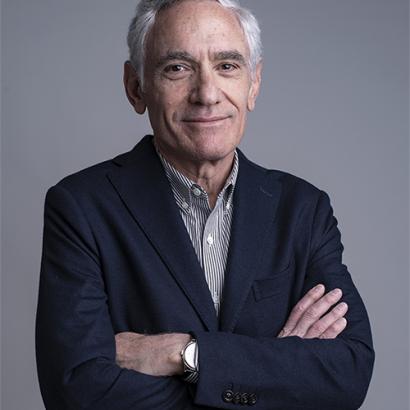
Scott W. Atlas
Robert Wesson Senior Fellow
Scott W. Atlas, MD is the Robert Wesson Senior Fellow in Scientific Philosophy & Public Policy at the Hoover Institution of Stanford University.
Dr. Atlas investigates the role of government and the private sector in health care quality and access, global trends in health care innovation, and the key economic and civil liberty issues related to health policy. He is a frequent policy advisor to policymakers and government officials in the United States and in other countries. He has served as senior advisor for health policy to several candidates for President, as well as having counselled members of the US Congress on health care, testified before Congress, and briefed directors of key federal agencies. From July to December, 2020, he served as a Special Advisor to the President and a member of the White House Coronavirus Task Force.
Before his appointment at Hoover Institution, he was Professor and Chief of Neuroradiology at Stanford University Medical Center for 14 years. His publications and interviews have appeared worldwide. Dr. Atlas is the author of numerous books, including A Plague Upon Our House: My Fight at the Trump White House to Stop COVID from Destroying America (Post Hill Press), In Excellent Health: Setting the Record Straight on America’s Health Care System (Hoover Press), and Restoring Quality Health Care: A Six‐Point Plan for Comprehensive Reform at Lower Cost (Hoover Press). He is also the editor of "Magnetic Resonance Imaging of the Brain and Spine" – the leading textbook in the field, translated into several languages, and now in its 5th edition.
Dr. Atlas has received many awards and accolades from leading institutions and societies all over the world in recognition of his leadership in policy and medicine. He was awarded the 2022 Encounter Prize for Advancing American Ideals, explained as follows: “Standing up to injustice and facing down the madding crowd of conformity requires enormous patience, equilibrium, insight, and courage—the most important virtue, Aristotle observed, because without it none of the other virtues can flourish. The Encounter Prize for Advancing American Ideals pays tribute to individuals who effectively embody this rare combination of virtues in their lives and work.” He also received the 2021 Freedom Leadership Award, Hillsdale College’s highest honor, “in recognition of his dedication to individual freedom and the free society,” the 2021 Conservative Partnership Institute Freedom Fighter of the Year Award, CPI’s highest honor, "bestowed upon an individual for their courage and dedication to truth and liberty" and the 2011 Alumni Achievement Award, the highest career achievement honor for a distinguished alumnus from the University of Illinois in Urbana‐Champaign. In the private sector, Atlas is a frequent advisor to start-up entrepreneurs and companies in life sciences and medical technology. He received his MD degree from the University of Chicago School of Medicine.
Read Full Bio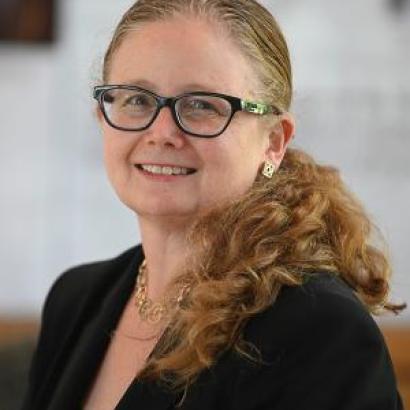
Brandice Canes-Wrone
Maurice R. Greenberg Senior Fellow | Director of the Center for Revitalizing American Institutions
Brandice Canes-Wrone is the Maurice R. Greenberg Senior Fellow at the Hoover Institution and a professor in the Political Science department at Stanford. Canes-Wrone is the founding director of the Hoover Institution Center for Revitalizing American Institutions. Her current research focuses on representation and accountability, including projects on elections, campaign finance, and congressional behavior. She also writes on the effects of political phenomena on economic outcomes.
During the course of her career, Canes-Wrone has published numerous articles and books on political institutions, mass political behavior, and political economy. Her book Who Leads Whom? Presidents, Policy, and Public (University of Chicago, 2006) examines how US presidents leverage public opinion to influence policy and how they respond to public opinion in their policy choices. This work was awarded the 2007 Richard E. Neustadt Book Award by the American Political Science Association for the best book on the US presidency. Her more recent scholarship on executive politics investigates how unilateral executive authority is related to electoral cycles in economic uncertainty and investment. Other current research focuses on accountability and representation in the US context, including as a coeditor of the volume Accountability Reconsidered: Voters, Interests, and Information in US Policymaking (Cambridge, forthcoming, 2023) and forthcoming articles in the American Political Science Review and Journal of Politics.
Canes-Wrone has also been active in promoting academic freedom and civil discourse on college campuses, including as a founding member of the Academic Freedom Alliance (AFA); a founding and current board member of the American Association of Sciences and Letters (AASL); and as an advisory council member of the Stanford Civics Initiative and James Madison Program of Princeton University. An elected member of the American Academy of Arts and Sciences (AAAS), she has served on the editorial boards of numerous political science and political economy journals, and on the boards of the American National Elections Studies, the Institute for Advanced Study in Toulouse, and the Presidents and Executive Politics Section of the American Political Science Association.
Read Full Bio
John H. Cochrane
Rose-Marie and Jack Anderson Senior Fellow
John H. Cochrane is the Rose-Marie and Jack Anderson Senior Fellow of the Hoover Institution at Stanford University.
His monetary economics publications include the book The Fiscal Theory of the Price Level and articles on monetary policy and inflation. His finance publications include the book Asset Pricing and articles on dynamics in stock and bond markets, the volatility of exchange rates, the term structure of interest rates, the returns to venture capital, liquidity premiums in stock prices, the relation between stock prices and business cycles, and option pricing. He has also written articles on macroeconomics, health insurance, time-series econometrics, financial regulation, and other topics. He was a coauthor of The Squam Lake Report. He writes occasional Op-eds, mostly in the Wall Street Journal, and blogs as “the Grumpy Economist” at grumpy-economist.com. He recently created the Coursera online course “Asset Pricing.”
Cochrane is also a Senior Fellow of the Stanford Institute for Economic Policy Research (SIEPR), Professor of Finance and Economics (by Courtesy) at Stanford GSB, a Research Associate of the National Bureau of Economic Research, and an Adjunct Scholar of the CATO Institute. He is a past President and Fellow of the American Finance Association, and a Fellow of the Econometric Society. He has been an Editor of the Journal of Political Economy, and associate editor of several journals including the Journal of Monetary Economics, Journal of Business, and Journal of Economic Dynamics and Control. He was a director of the NBER asset pricing program. Awards include the Bradley Prize, the APEE Adam Smith award, the TIAA-CREF Institute Paul A. Samuelson Award for Asset Pricing, the Chookaszian Endowed Risk Management Prize, the Faculty Excellence Award for MBA teaching and the McKinsey Award for Outstanding Teaching.
Before coming to Hoover, Cochrane was the AQR Capital Management Distinguished Service Professor of Finance at the University of Chicago Booth School of Business, where he taught the MBA class “Advanced Investments” and a variety of PhD classes in Asset Pricing and Monetary Economics. Cochrane earned a Bachelor’s degree in Physics at MIT, and earned his Ph.D. in Economics at the University of California at Berkeley. He was at the Economics Department of the University of Chicago before joining the Booth School in 1994, and visited UCLA Anderson School of Management in 2000-2001.
Outside of academic pursuits Cochrane is a competition sailplane pilot, and enjoys cycling, windsurfing, skiing, and other outdoor activities.
Read Full Bio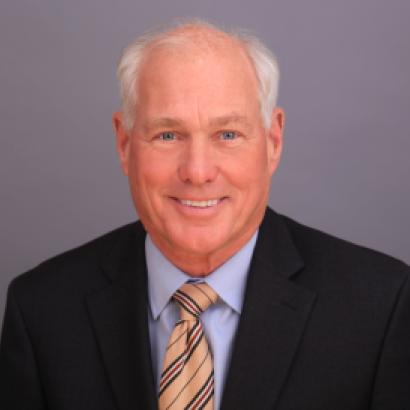
John F. Cogan
Leonard and Shirley Ely Senior Fellow
John F. Cogan is the Leonard and Shirley Ely Senior Fellow at the Hoover Institution. His research is focused on US budget and fiscal policy and federal entitlement programs. He has published widely in professional journals in both economics and political science. His latest book, The High Cost of Good Intentions (2017) is the recipient of the 2018 Hayek Prize. The book traces the history of US federal entitlement programs from the Revolutionary War to modern times. His previous books include Healthy, Wealthy, and Wise: Five Steps to a Better Health Care System (2005), coauthored with Glenn Hubbard and Daniel P. Kessler, and The Budget Puzzle (1994), with Timothy J. Muris and Allen Schick.
At Stanford, he taught classes in the Economics Department, the Graduate School of Business, and the Public Policy Program, where he was a faculty member from 1994 to 2019. He also served on faculty advisory boards for the Stanford in Washington Program and the Stanford Institute for Economic Policy Research. He is a recipient of the Stanford-in-Government's Distinguished Service Award and the Stanford Review’s Best Undergraduate Teaching Award.
Cogan has devoted a considerable part of his career to public service. He served under President Ronald Reagan as assistant secretary for policy in the US Department of Labor from 1981 to 1983, and in the US Office of Management and Budget, as associate director from 1983 to 1985 and as deputy director from 1988 to 1989.
He was appointed to numerous congressional, presidential, and California state advisory commissions. He was a member of President George W. Bush’s Commission to Strengthen Social Security, the US Bipartisan Commission on Health Care (the Pepper Commission), the Social Security Notch Commission, and the National Academy of Sciences’ Panel on Poverty and Family Assistance. He was also a member of the California State Commission on the 21st-Century Economy and the California Public Employee Post-Employment Benefits Commission.
Cogan served on the board of directors of Monaco Coach Corporation from 2006 to 2009; the board of directors of Gilead Sciences from 2006 to 2020 (lead independent director, 2013–2020); and on the board of trustees of the Charles Schwab Family of Funds from 2009 to 2021 (chairman, Governance Committee 2014–2020).
Cogan received his AB in 1969 and his PhD in 1976 from the University of California–Los Angeles, both in economics. He received his MA in economics from California State University–Long Beach in 1970. He was an associate economist at the RAND Corporation from 1975 to 1980. In 1979, Cogan was appointed a national fellow at the Hoover Institution; in 1980 he was appointed a senior research fellow; and in 1984 he became a senior fellow.
Read Full Bio
Frank Dikötter
Milias Senior Fellow
Frank Dikötter is the Milias Senior Fellow at the Hoover Institution and chair professor of humanities at the University of Hong Kong. He is the most widely read living historian of modern China, with books translated into more than twenty languages. He is the author of The People’s Trilogy, which includes Mao’s Great Famine (2010), The Tragedy of Liberation (2013), and The Cultural Revolution (2016).
Born in the Netherlands, Dikötter graduated from the University of Geneva in 1985 with honors in history and Russian and earned a PhD in history at the School of Oriental and African Studies (SOAS), University of London. He spent close to twenty years at SOAS before moving to Asia in 2006 to join the University of Hong Kong.
He accessed thousands of files in the archives of the Communist Party of China to document the fate of ordinary people under Mao in The People’s Trilogy. The first installment, Mao's Great Famine: The History of China's Most Devastating Catastrophe won the Samuel Johnson Prize for Non-Fiction, Britain's most prestigious literary award. It was followed by The Tragedy of Liberation: A History of the Chinese Revolution, 1945–1957 and The Cultural Revolution: A People’s History, 1962–1976.
Dikötter’s other more recent books include How to be a Dictator (2019) and China after Mao (2022), a sequel to the trilogy, which showed how the forty years since 1978 reinforced the party’s monopoly over power and its control of the economy.
Dikötter joined the Hoover Institution as adjunct in 2017 and was named Milias Senior Fellow on a full-time basis in 2025. He has an honorary doctorate from Leiden University.
Read Full Bio
Sir Niall Ferguson
Milbank Family Senior Fellow
Sir Niall Ferguson, MA, DPhil, FRSE, is the Milbank Family Senior Fellow at the Hoover Institution, Stanford University, and a senior faculty fellow of the Belfer Center for Science and International Affairs at Harvard. He is the author of sixteen books, including The Pity of War, The House of Rothschild, Empire, Civilization and Kissinger, 1923-1968: The Idealist, which won the Council on Foreign Relations Arthur Ross Prize. He is an award-making filmmaker, too, having won an international Emmy for his PBS series The Ascent of Money. His 2018 book, The Square and the Tower, was a New York Times bestseller and also adapted for television by PBS as Niall Ferguson’s Networld. In 2020 he joined Bloomberg Opinion as a columnist. In addition, he is the founder and managing director of Greenmantle LLC, a New York-based advisory firm, a co-founder of Ualá, a Latin American financial technology company, and a trustee of the New York Historical Society, the London-based Centre for Policy Studies, and the newly founded University of Austin. His latest book, Doom: The Politics of Catastrophe, was published in 2021 by Penguin and was shortlisted for the Lionel Gelber Prize.
Read Full Bio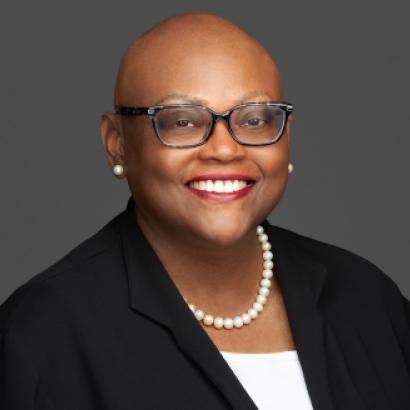
Jendayi Frazer
Peter J. and Frances Duignan Distinguished Visiting Fellow
Jendayi E. Frazer is the Peter J. and Frances Duignan Distinguished Visiting Fellow at the Hoover Institution, Stanford University. Previously she served as the US assistant secretary of state for African affairs from 2005 to 2009. She was special assistant to the president and senior director for African affairs at the National Security Council from 2001 until her swearing-in as the first woman US ambassador to South Africa, in 2004. She previously served in government from 1998 to 1999 as a Council on Foreign Relations International Affairs Fellow, first at the Pentagon as a political-military planner with the Joint Chiefs of Staff, working on West Africa during Nigeria’s transition to civilian rule, and then as director for African affairs at the National Security Council, working on Central and East Africa.
Frazer is an adjunct senior fellow for Africa studies at the Council on Foreign Relations. She was a Distinguished Public Service Professor at Carnegie Mellon University from 2009 to 2014, where she was on the faculty of Heinz College’s School of Public Policy and Management. She was also an assistant professor at Harvard University and the University of Denver. Her research focuses on strengthening regional security cooperation and economic and political integration in Africa. Author of and contributor to a number of articles, journals, and books, she is the coeditor of Preventing Electoral Violence in Africa (2011).
Frazer received her BA in political science (with honors) and in African and Afro-American studies (with distinction), MAs in international policy studies and international development education, and a PhD in political science, all from Stanford University.
Read Full Bio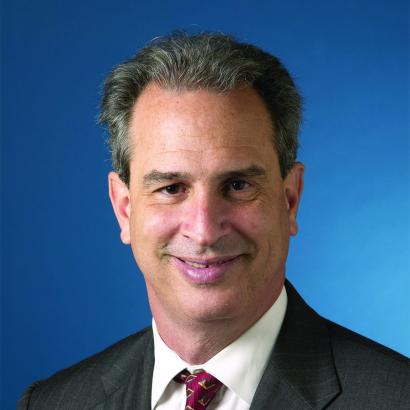
Stephen Haber
Park L. Loughlin Senior Fellow
Stephen Haber is the Park L. Loughlin Senior Fellow at the Hoover Institution and director of the Hoover Program on the Foundations for Economic Prosperity. He is the A.A. and Jeanne Welch Milligan Professor in the School of Humanities and Sciences at Stanford University, and senior fellow at the Stanford Institute for Economic Policy Research. In addition, he is a professor of political science, professor of history, and professor of economics (by courtesy).
Haber has spent his career investigating why the world distribution of income so uneven. His papers have been published in economics, history, political science, and law journals. He is the author of five books and the editor of six more. Haber’s most recent books include Fragile by Design with Charles Calomiris (Princeton University Press), which examines how governments and industry incumbents often craft banking regulatory policies in ways that stifle competition and increase systemic risk. The Battle Over Patents (Oxford University Press), a volume edited with Naomi Lamoreaux, documents the development of US-style patent systems and the political fights that have shaped them.
His latest project focuses on a long-standing puzzle in the social sciences: why are prosperous democracies not randomly distributed across the planet, but rather, are geographically clustered? Haber and his coauthors answer this question by using geospatial tools to simulate the ecological conditions that shaped pre-industrial food production and trade. They then employ machine learning methods to elucidate the relationship between ecological conditions and the levels of economic development that emerged across the globe over the past three centuries.
Haber holds a Ph.D. in history from UCLA and has been on the Stanford faculty since 1987. From 1995 to 1998, he served as associate dean for the social sciences and director of Graduate Studies of Stanford’s School of Humanities and Sciences. He is among Stanford’s most distinguished teachers, having been awarded every teaching prize Stanford has to offer.
Read Full Bio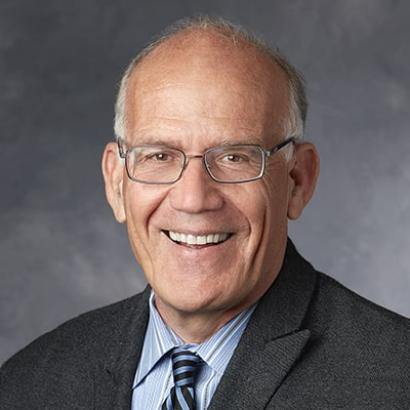
Victor Davis Hanson
Martin and Illie Anderson Senior Fellow
Victor Davis Hanson is the Martin and Illie Anderson Senior Fellow at the Hoover Institution; his focus is classics and military history.
Hanson was a National Endowment for the Humanities fellow at the Center for Advanced Studies in the Behavioral Sciences, Stanford, California (1992–93), a visiting professor of classics at Stanford University (1991–92), the annual Wayne and Marcia Buske Distinguished Visiting Fellow in History at Hillsdale College (2004–), the Visiting Shifron Professor of Military History at the US Naval Academy (2002–3), and the William Simon Visiting Professor of Public Policy at Pepperdine University (2010).
In 1991 he was awarded an American Philological Association Excellence in Teaching Award. He received the Eric Breindel Award for Excellence in Opinion Journalism (2002), presented the Manhattan's Institute's Wriston Lecture (2004), and was awarded the National Humanities Medal (2007) and the Bradley Prize (2008).
Hanson is the author of hundreds of articles, book reviews, and newspaper editorials on Greek, agrarian, and military history and essays on contemporary culture. He has written or edited twenty-four books, the latest of which is The Case for Trump (Basic Books, 2019). His other books include The Second World Wars (Basic Books, 2017); The Savior Generals: How Five Great Commanders Saved Wars That Were Lost - from Ancient Greece to Iraq (Bloomsbury 2013); The End of Sparta (Bloomsbury, 2011); The Father of Us All: War and History, Ancient and Modern (Bloomsbury, 2010); Makers of Ancient Strategy: From the Persian Wars to the Fall of Rome (ed.) (Princeton, 2010); The Other Greeks (California, 1998); The Soul of Battle (Free Press, 1999); Carnage and Culture (Doubleday, 2001); Ripples of Battle (Doubleday, 2003); A War Like No Other (Random House, 2005); The Western Way of War (Alfred Knopf, 1989; 2nd paperback ed., University of California Press, 2000); The Wars of the Ancient Greeks (Cassell, 1999; paperback ed., 2001); and Mexifornia: A State of Becoming (Encounter, 2003), as well as two books on family farming, Fields without Dreams (Free Press, 1995) and The Land Was Everything (Free Press, 1998). Currently, he is a syndicated columnist for Tribune Media Services and a weekly columnist for the National Review Online.
Hanson received a BA in classics at the University of California, Santa Cruz (1975), was a fellow at the American School of Classical Studies, Athens (1977–78), and received his PhD in classics from Stanford University (1980).
Read Full Bio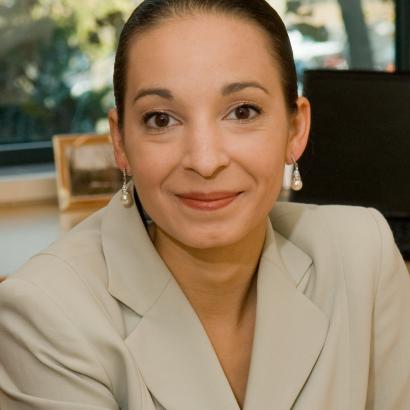
Caroline M. Hoxby
Robert and Carole McNeil Senior Fellow (joint)
Caroline M. Hoxby is the Robert and Carole McNeil Senior Fellow (joint) at the Hoover Institution and a member of the Koret Task Force on K–12 Education. She is the Scott & Donya Bommer Professor of Economics at Stanford University and the director of the Economics of Education Program for the National Bureau of Economic Research. She also serves as a member of the Board of Directors of the National Board for Education Sciences.
Hoxby's research has received numerous awards, including a Carnegie Fellowship, a John M. Olin Fellowship, a National Tax Association Award, and a major grant from the National Institute of Child Health and Development. She is the recipient of the 2006 Thomas J. Fordham Prize for Distinguished Scholarship.
She has written extensively on educational choice and related issues. She is the editor of How the Financial Crisis and Great Recession Affected Higher Education (University of Chicago Press, 2015), The Economic Analysis of School Choice (University of Chicago Press, 2002), and College Choices (University of Chicago Press, 2004). Some of her published articles include "Does Competition among Public Schools Benefit Students and Taxpayers?" (American Economic Review, 2000), "Not All School Finance Equalizations Are Created Equal" (Quarterly Journal of Economics, 2001), and "How Teachers' Unions Affect Education Production" (Quarterly Journal of Economics, 1996).
Other articles written by Hoxby include "The Effects of School Choice on Curriculum and Atmosphere" (in Earning and Learning: How Schools Matter), "The Effects of Class Size on Student Achievement" (Quarterly Journal of Economics, 1999), and "Evidence on Private School Vouchers: Effects on Schools and Students" (in Performance Based Approaches to School Reform).
Hoxby, who was the subject of a feature article in The New Yorker, has an undergraduate degree, a master's degree, and a doctorate in economics. She earned her master's degree in 1990 from the University of Oxford, which she attended on a Rhodes Scholarship, and her doctorate in 1994 from the Massachusetts Institute of Technology.
Read Full Bio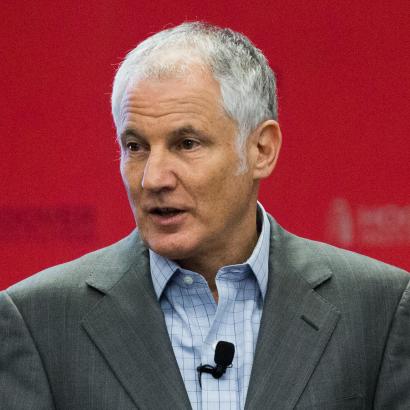
Stephen Kotkin
Kleinheinz Family Senior Fellow
In addition to his Hoover fellowship, Stephen Kotkin is a senior fellow at Stanford’s Freeman Spogli Institute for International Studies. He is also the Birkelund Professor in History and International Affairs emeritus at the Princeton School of Public and International Affairs (formerly the Woodrow Wilson School), where he taught for 33 years. He earned his PhD at the University of California–Berkeley and has been conducting research in the Hoover Library & Archives for more than three decades.
Kotkin’s research encompasses geopolitics and authoritarian regimes in history and in the present. His publications include Stalin: Waiting for Hitler, 1929–1941 (Penguin, 2017) and Stalin: Paradoxes of Power, 1878–1928 (Penguin, 2014), two parts of a planned three-volume history of Russian power in the world and of Stalin’s power in Russia. He has also written a history of the Stalin system’s rise from a street-level perspective, Magnetic Mountain: Stalinism as a Civilization (University of California 1995); and a trilogy analyzing Communism’s demise, of which two volumes have appeared thus far: Armageddon Averted: The Soviet Collapse 1970–2000 (Oxford, 2001; rev. ed. 2008) and Uncivil Society: 1989 and the Implosion of the Communist Establishment, with a contribution by Jan T. Gross (Modern Library, 2009). The third volume will be on the Soviet Union in the third world and Afghanistan. Kotkin’s publications and public lectures also often focus on Communist China.
Kotkin has participated in numerous events of the National Intelligence Council, among other government bodies, and is a consultant in geopolitical risk to Conexus Financial and Mizuho Americas. He served as the lead book reviewer for the New York Times Sunday Business Section for a number of years and continues to write reviews and essays for Foreign Affairs, the Times Literary Supplement, and the Wall Street Journal, among other venues. He has been an American Council of Learned Societies Fellow, a National Endowment for the Humanities Fellow, and a Guggenheim Fellow.
Read Full Bio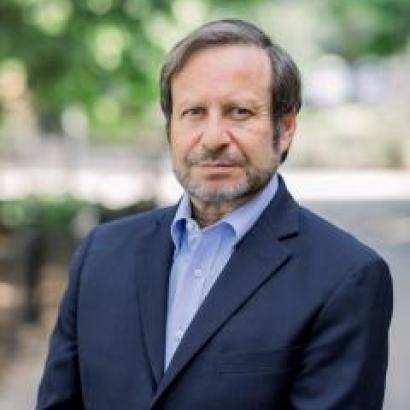
Steven Koonin
Edward Teller Senior Fellow
Steven E. Koonin is the Edward Teller Senior Fellow at Stanford University’s Hoover Institution. Before joining Stanford in 2024, he was a professor at New York University, with appointments in the Stern School of Business, the Tandon School of Engineering, and the Department of Physics. He founded NYU’s Center for Urban Science and Progress, which focuses research and education on the acquisition, integration, and analysis of big data for big cities.
Prior to his time at NYU, Koonin served as undersecretary for science in the US Department of Energy under President Obama from 2009 to 2011, where his portfolio included the climate research program and energy technology strategy. He was the lead author of the US Department of Energy’s Strategic Plan (2011) and the inaugural Department of Energy Quadrennial Technology Review (2011). Before joining the government, Koonin spent five years as chief scientist for BP, researching renewable energy options to move the company “beyond petroleum.”
For almost 30 years, Koonin was a professor of theoretical physics at Caltech. He also served for nine years as Caltech’s vice president and provost, facilitating the research of more than 300 scientists and engineers and catalyzing the development of the world’s largest optical telescope, as well as guiding research initiatives in computational science, bioengineering, and the biological sciences.
Koonin is a member of the National Academy of Sciences. His other memberships include the American Academy of Arts and Sciences and JASON, a group of scientists who solve technical problems for the US government; he served as JASON’s chair for six years. He chaired the National Academies’ Divisional Committee for Engineering and Physical Sciences from 2014 to 2019 and was a trustee of the Institute for Defense Analyses from 2014‒24. He is currently an independent governor of the Lawrence Livermore National Laboratory and has served in similar roles for the Los Alamos, Sandia, Brookhaven, and Argonne national laboratories.
Koonin has a BS in physics from Caltech and a PhD in theoretical physics from MIT. He is an award-winning classroom teacher and his public lectures are noted for their clarity in conveying complex subjects. He is the author of the classic 1985 textbook Computational Physics, which introduced methodology for building computer models of complex physical systems. He has published some 200 peer-reviewed papers in the fields of physics and astrophysics, scientific computation, energy technology and policy, and climate science, and he has been the lead author on multiple book-length reports, including two National Academies studies. His bestselling book Unsettled: What Climate Science Tells Us, What It Doesn’t, and Why It Matters was published in 2021.
Read Full Bio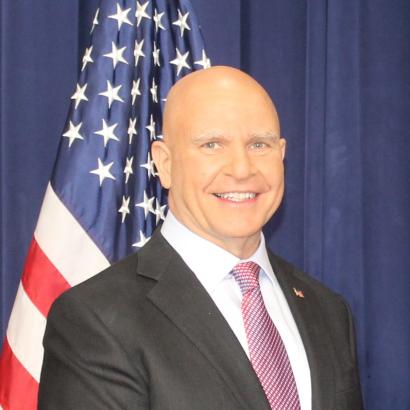
H.R. McMaster
Fouad and Michelle Ajami Senior Fellow
H.R. McMaster is the Fouad and Michelle Ajami Senior Fellow at the Hoover Institution, Stanford University. He is also the Bernard and Susan Liautaud Fellow at the Freeman Spogli Institute and lecturer at Stanford University’s Graduate School of Business.
Upon graduation from the US Military Academy in 1984, McMaster served as a commissioned officer in the US Army for thirty-four years. He retired as a lieutenant general in June 2018 after serving as the twenty-fifth Assistant to the US President for National Security Affairs. From 2014 to 2017, McMaster designed the future army as the director of the Army Capabilities Integration Center and the deputy commanding general, futures, of the US Army Training and Doctrine Command (TRADOC). As commanding general of the Maneuver Center of Excellence at Fort Benning, he oversaw all training and education for the army’s infantry, armor, and cavalry force. He has commanded organizations in wartime including the Combined Joint Inter-Agency Task Force—Shafafiyat in Kabul, Afghanistan, from 2010 to 2012; the Third Armored Cavalry Regiment in Iraq from 2005 to 2006; and Eagle Troop, Second Armored Cavalry Regiment in Operation Desert Storm from 1990 to 1991. McMaster also served overseas as advisor to the most senior commanders in the Middle East, Iraq, and Afghanistan. He was a Hoover National Security Affairs Fellow from 2002-2003.
McMaster holds a PhD in military history from the University of North Carolina at Chapel Hill. He was an assistant professor of history at the US Military Academy. He is author of the bestselling books Battlegrounds: The Fight to Defend the Free World and Dereliction of Duty: Lyndon Johnson, Robert McNamara, the Joint Chiefs of Staff and the Lies that Led to Vietnam. In August 2024, McMaster released his most recent book, At War with Ourselves: My Tour of Duty in the Trump White House. His many essays, articles, and book reviews on leadership, history, and the future of warfare have appeared in The Atlantic, Foreign Affairs, Foreign Policy, National Review, the Wall Street Journal, the Washington Post, and the New York Times.
McMaster is the host of Today's Battlegrounds and is a regular on GoodFellows, both produced by the Hoover Institution. He is a Distinguished University Fellow at Arizona State University.
Read Full BioDavid Neumark
Visiting Fellow
David Neumark is distinguished professor of economics and codirector of the Center for Population, Inequality, and Policy at the University of California–Irvine. He has previously held positions at the Federal Reserve Board, the University of Pennsylvania, Michigan State University, and the Public Policy Institute of California.
He has made research contributions in numerous areas of labor economics that intersect with important public policy issues. Neumark’s research on labor market discrimination has opened up new methods of measuring discrimination. His early work on wage equation decompositions led to efforts to better tie these measurement methods to underlying models of discrimination. Later work developed methods of using matched employer-employee data to test for discrimination. And his recent methodological contribution on audit and correspondence studies is being rapidly adopted in new and ongoing studies.
Neumark was one of the original contributors to the “new minimum wage research,” helping to pioneer the use of state-level minimum wage variation to estimate minimum wage effects. His subsequent work moved well beyond the debate over employment effects, toward research on the effects of minimum wages on the income distribution, the long-run effects of minimum wages on human capital and earnings, and complementarities between minimum wages and the Earned Income Tax Credit. In related work, he was the first to assemble data and explore methods to study the effects of cities’ living wage laws, as well as contributing to understanding of the political economy of these laws.
Neumark has authored many studies on age discrimination and the economics of aging. Recently he has studied how stronger age discrimination laws complement policy reforms intended to increase the labor supply of older workers, conducted a large-scale field experiment testing for age discrimination, and developed methods to test for age stereotypes in job ads and explore how these influence job searches of older workers.
Read Full Bio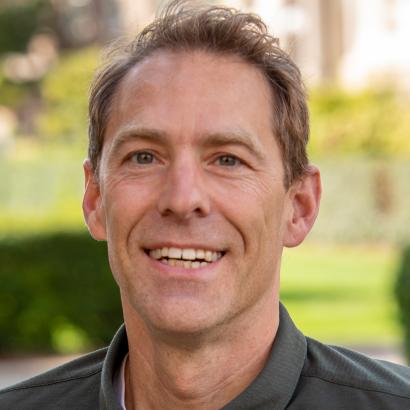
Dominic Parker
Ilene and Morton Harris Senior Fellow (adjunct)
Dominic (Nick) Parker is the Ilene and Morton Harris Senior Fellow (adjunct) at the Hoover Institution and the Anderson-Bascom Professor of Applied Economics at the University of Wisconsin–Madison, where he has won several awards for research and teaching. He is a senior fellow at the Property Environment Research Center and a regular lecturer for the Ronald Coase Institute and the Elinor Ostrom Workshop.
In addition to serving editorial roles at three leading journals in environmental economics, Parker contributes research to economics, science, and law journals. It includes studies of environmental markets and property rights, mining and energy booms, land use, fishery and wildlife regulations, water trading, and the political economy of policies toward Indigenous people. His research has been covered in more than 100 media outlets including BBC News, the Wall Street Journal, and The Economist. It has provided input for domestic and international policies ranging from US Department of Interior rules on federal land use to guidelines for the Securities and Exchange Commission and the Organisation for Economic Co-operation and Development on supply-chain reporting and conflict minerals.
Parker joins Hoover senior fellow Terry Anderson in directing Hoover projects on Renewing Indigenous Economies and Markets vs. Mandates, which analyzes incentives for improving environmental quality.
Read Full BioValerie Ramey
Thomas Sowell Senior Fellow
Valerie Ramey is the Thomas Sowell Senior Fellow at the Hoover Institution. She is also a Research Associate of the National Bureau of Economic Research, a Research Fellow of the Centre for Economic Policy and Research, a member of the American Academy of Arts and Sciences, and a Fellow of the Econometric Society. She has served as co-editor of the American Economic Review and as a member of several National Science Foundation Advisory Panels and the Federal Economic Statistics Advisory Committee. She currently serves on the Panel of Economic Advisers for the Congressional Budget Office and is chair of the NBER Business Cycle Dating Committee. She is a co-editor of the NBER Macro Annual.
Ramey has published numerous scholarly articles and policy-relevant articles on macroeconomic topics such as the sources of business cycles, the effects of monetary and fiscal policy, the effects oil price shocks, and the impact of volatility on growth. She has also written numerous articles on trends in wage inequality and trends in time use, such as the increase in time investments in children by educated parents. Her work has been featured in major media, such as the Wall Street Journal and the New York Times.
Read Full Bio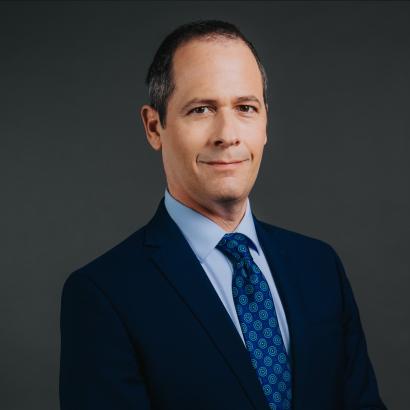
Joshua D. Rauh
George P. Shultz Senior Fellow in Economics (joint)
Joshua Rauh is the Ormond Family Professor of Finance at Stanford’s Graduate School of Business and the George P. Shultz Senior Fellow in Economics (joint) at the Hoover Institution. He leads the Hoover Institution's Fiscal Policy Initiative and the Hoover Institution State and Local Governance Initiative. He formerly served at the White House where he was principal chief economist on the President’s Council of Economic Advisers (2019-20), and taught at the University of Chicago’s Booth School of Business (2004–9) and the Kellogg School of Management (2009–12). At the Hoover Institution he has served as Director of Research (2018-19). He has testified before House, Joint, and Joint Select Committees of the United States Congress, and he is a member of the Panel of Economic Advisers of the Congressional Budget Office.
His research focuses on government liabilities, corporate and individual taxation, and institutional investing. His work has received media coverage in outlets such as the Wall Street Journal, the New York Times, the Financial Times, and The Economist. He has received various awards recognizing his scholarship including the Brattle Prize and the Smith Breeden Prize of the American Finance Association. His scholarly papers have appeared in journals such as the Journal of Political Economy, the Quarterly Journal of Economics, the Journal of Finance, the Journal of Financial Economics, the Review of Financial Studies, and the Journal of Public Economics. He is a Research Associate of the National Bureau of Economic Research.
He has published numerous op-eds in outlets including the Wall Street Journal, The Hill, and The National Review online. His PragerU videos on public pensions, the role of government, and taxation and inequality have together been viewed over 10 million times. He is the founder of the Liberty Lens Economics Substack.
Prior to his academic career, Dr. Rauh was an associate economist at Goldman Sachs in London. He received a BA from Yale University and a PhD from the Massachusetts Institute of Technology, both in economics.
Read Full Bio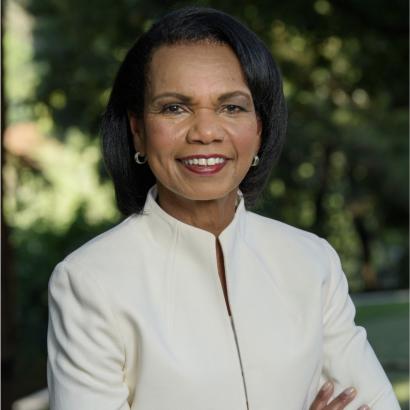
Condoleezza Rice
Tad and Dianne Taube Director | Thomas and Barbara Stephenson Senior Fellow on Public Policy
Condoleezza Rice is the Tad and Dianne Taube Director of the Hoover Institution and the Thomas and Barbara Stephenson Senior Fellow on Public Policy. She is the Denning Professor in Global Business and the Economy at the Stanford Graduate School of Business. In addition, she is a founding partner of Rice, Hadley, Gates & Manuel LLC, an international strategic consulting firm.
From January 2005 to January 2009, Rice served as the 66th Secretary of State of the United States, the second woman and first black woman to hold the post. Rice also served as President George W. Bush’s Assistant to the President for National Security Affairs (National Security Advisor) from January 2001 to January 2005, the first woman to hold the position.
Rice served as Stanford University’s provost from 1993 to 1999, during which time she was the institution’s chief budget and academic officer. As Professor of Political Science, she has been on the Stanford faculty since 1981 and has won two of the university’s highest teaching honors.
From February 1989 through March 1991, Rice served on President George H.W. Bush’s National Security Council staff. She served as Director, then Senior Director, of Soviet and East European Affairs, as well as Special Assistant to the President for National Security. In 1986, while an International Affairs Fellow of the Council on Foreign Relations, Rice also served as Special Assistant to the Director of the Joint Chiefs of Staff.
She has authored and co-authored numerous books, most recently To Build a Better World: Choices to End the Cold War and Create a Global Commonwealth (2019), co-authored with Philip Zelikow. Among her other volumes are three bestsellers, Democracy: Stories from the Long Road to Freedom (2017); No Higher Honor: A Memoir of My Years in Washington (2011); and Extraordinary, Ordinary People: A Memoir of Family (2010). She also wrote Political Risk: How Businesses and Organizations Can Anticipate Global Insecurity (2018) with Amy B. Zegart; Germany Unified and Europe Transformed: A Study in Statecraft (1995) with Philip Zelikow; edited The Gorbachev Era (1986) with Alexander Dallin; and penned The Soviet Union and the Czechoslovak Army; 1948-1983: Uncertain Allegiance (1984).
In 1991, Rice co-founded the Center for a New Generation (CNG), an innovative, after-school academic enrichment program for students in East Palo Alto and East Menlo Park, California. In 1996, CNG merged with the Boys & Girls Club of the Peninsula, an affiliate club of the Boys & Girls Clubs of America (BCGA). CNG has since expanded to local BGCA chapters in Birmingham, Atlanta, and Dallas. Rice remains an active proponent of an extended learning day through after-school programs.
Since 2009, Rice has served as a founding partner at Rice, Hadley, Gates, & Manuel LLC, an international strategic consulting firm based in Silicon Valley and Washington, D.C. The firm works with senior executives of major companies to implement strategic plans and expand in emerging markets. Other partners include former National Security Advisor Stephen J. Hadley, former Secretary of Defense Robert M. Gates, and former diplomat, author, and advisor on emerging markets, Anja Manuel.
In 2022, Rice became a part-owner of the Denver Broncos as a part of the Walton-Penner Family Ownership Group. In 2013, Rice was appointed to the College Football Playoff Selection Committee, formerly the Bowl Championship Series. She served on the committee until 2017.
Rice currently serves on the boards of C3.ai, an AI software company; and Makena Capital Management, a private endowment firm. In addition, she is Vice Chair of the Board of Governors of the Boys & Girls Clubs of America and a trustee of the Aspen Institute. Previously, Rice served on various boards, including Dropbox; the George W. Bush Institute; the Commonwealth Club; KiOR, Inc.; the Chevron Corporation; the Charles Schwab Corporation; the Transamerica Corporation; the Hewlett-Packard Company; the University of Notre Dame; the Foundation of Excellence in Education; the John F. Kennedy Center for the Performing Arts; and the San Francisco Symphony.
Born in Birmingham, Alabama, Rice earned her bachelor’s degree in political science, cum laude and Phi Beta Kappa, from the University of Denver; her master’s in the same subject from the University of Notre Dame; and her Ph.D., likewise in political science, from the Graduate School of International Studies at the University of Denver.
Rice is a Fellow of the American Academy of Arts and Sciences and has been awarded over fifteen honorary doctorates.
Read Full Bio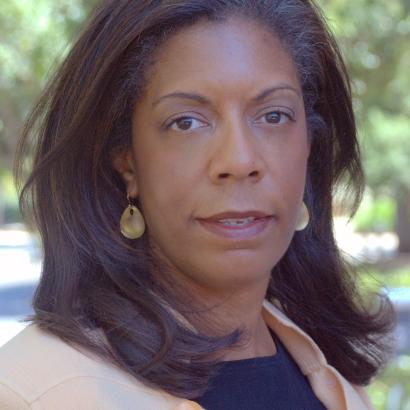
Kiron K. Skinner
W. Glenn Campbell Research Fellow
Kiron K. Skinner is the W. Glenn Campbell Research Fellow at the Hoover Institution. Her areas of expertise are international relations, international security, US foreign policy, and political strategy. Skinner participates in numerous Hoover Institution projects, including the Global Policy and Strategy Initiative on international aecurity, the Middle East and the Islamic World Working Group, and the Military History in Contemporary Conflict Working Group. Skinner currently serves as the Taube Professor of International Relations and Politics at Pepperdine University's School of Public Policy; visiting fellow and senior advisor to the president at the Heritage Foundation; president and CEO of Foundation for America and the World; and a Fox News contributor.
Skinner previously served as the Taube Professor of International Relations and Politics at Carnegie Mellon University (CMU), as well as the founding director of the Carnegie Mellon University Washington Semester Program; the Center for International Relations and Politics; and the Institute for Strategic Analysis. At CMU, Skinner was a distinguished fellow at CyLab, a cyber-oriented research center associated with the College of Engineering, and held courtesy faculty positions at Heinz College and the Institute for Software Research, an academic department in the School of Computer Science. She has also taught political science courses at Hamilton College, Harvard University, and the University of California–Los Angeles.
Skinner is an award-winning and best-selling author. Her coauthored books Reagan, In His Own Hand (2001) and Reagan, A Life in Letters (2003) were New York Times best sellers. The former was excerpted in the New York Times Magazine (December 31, 2000), was noted as one of the five best books on vital American presidential elections in the Wall Street Journal (March 5, 2021), and won the Hoover Institution’s Uncommon Book Award in 2002. The latter was selected as one of the best books of 2003 by the Los Angeles Times, was featured as a Time magazine cover story (September 29, 2003), and was the subject of an editorial written by the New York Times editorial board (September 29, 2003). Skinner also coauthored, with with Serhiy Kudelia, Bruce Bueno de Mesquita, and Condoleezza Rice, The Strategy of Campaigning: Lessons from Ronald Reagan and Boris Yeltsin (2007), which was excerpted on the New York Times opinion page (September 15, 2007). A frequent contributor of opinion essays, Skinner has written for CNN, Forbes, Foreign Policy, the National Interest, National Review Online, the New York Times, RealClear Defense, the Washington Post, and the Wall Street Journal. Skinner is the editor of a Palgrave Macmillan series on American political ideology.
From September 2018 to August 2019, Skinner served as director of the Office of Policy Planning and as senior policy adviser to the US secretary of state. In those roles, she reengaged the Department of State in red-team exercises on regional conflicts, spearheaded ties between the State and Defense Departments in critical areas, began a nationally discussed and debated discussion on the need for an Article X on China, and fostered transatlantic partnerships through numerous strategic dialogues, including the first Policy Planners Summit for NATO. She played a central role in creating the Commission on Unalienable Rights and rechartering the Foreign Affairs Policy Board, and she served as the secretariat for both entities. Following her time at the State Department, the White House appointed her to the US Defense Department’s Defense Business Board. At various times in the presidential administrations of George W. Bush, Barack Obama, and Donald J. Trump, Skinner served on the Chief of Naval Operations Executive Panel, the Defense Policy Board, the National Security Education Board (US Senate confirmed), and the board of the Naval Postgraduate School. In 2016, she was awarded the Superior Public Service award by the chief of naval operations.
Read Full Bio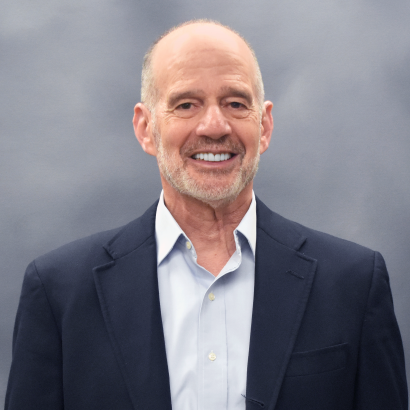
Barry Strauss
Corliss Page Dean Senior Fellow
Barry Strauss is the Corliss Page Dean Senior Fellow at the Hoover Institution. He is also the Bryce and Edith M. Bowmar Professor of Humanistic Studies Emeritus at Cornell University, where he taught for over four decades.
Strauss is a military and naval historian with a focus on ancient Greece and Rome and their lessons for today. “No one presents the military history of the ancient world with greater insight and panache than Strauss,” wrote Publishers Weekly. His books have been translated into twenty languages and include several bestsellers. His The Battle of Salamis (2004), Masters of Command (2012), Ten Caesars (2019), and The War that Made the Roman Empire (2022), all appeared on best books of the year lists. His latest book, Jews vs. Rome: Two Centuries of Rebellion Against the World’s Mightiest Empire, will be published by Simon & Schuster in August 2025. He is Series Editor of Princeton’s Turning Points in Ancient History. He also served as Distinguished Visiting Professor in the Department of Defense Analysis at the Naval Postgraduate School. He holds a Ph.D. from Yale and a B.A. from Cornell.
Strauss is a a winner of the 2025 Bradley Prize, honoring his lifelong dedication to the study and teaching of Western civilization and classical and military history. In recognition of his scholarship, Strauss was elected to membership of the American Academy of Sciences and Letters. He received Italy's Lucio Colletti Journalism Prize for Literature in 2015. He was named an Honorary Citizen of Salamis, Greece in 2012. He has received fellowships from the National Endowment for the Humanities, the German Academic Exchange Service, the Korea Foundation, the American School of Classical Studies at Athens, and the American Academy in Rome. See Strauss's personal website.
Read Full Bio
Ayaan Hirsi Ali
Research Fellow
Ayaan Hirsi Ali is a research fellow at the Hoover Institution and founder of the AHA Foundation. She served as a member of the Dutch Parliament from 2003 to 2006.
She was born in Mogadishu, Somalia in 1969. As a young child, she was subjected to female genital mutilation. As she grew up, she embraced Islam and strove to live as a devout Muslim. But she began to question aspects of her faith. One day, while listening to a sermon on the many ways women should be obedient to their husbands, she couldn't resist asking, "Must our husbands obey us too?"
In 1992 Ayaan fled to the Netherlands to escape a forced marriage. There she was given asylum, and in time citizenship. She quickly learned Dutch and was able to study at the University of Leiden, earning her M.A. in political science. Working as a translator for Somali immigrants, she saw first hand the inconsistencies between liberal, Western society and tribal, Muslim cultures.
From 2003 to 2006, Ayaan served as an elected member of the Dutch parliament. While in parliament, she focused on furthering the integration of non-Western immigrants into Dutch society, and on defending the rights of Muslim women.
In 2004 Ayaan gained international attention following the murder of Theo van Gogh. Van Gogh had directed her short film Submission, a film about the oppression of women under Islam. The assassin, a radical Muslim, left a death threat for her pinned to Van Gogh's chest.
In 2006, Ayaan had to resign from parliament when the then Dutch minister for Immigration decided to revoke her citizenship, arguing that Ayaan had misled the authorities at the time of her asylum application. However, the Dutch courts confirmed that Ayaan was indeed a legitimate Dutch citizen, leading to the fall of the government. Disillusioned with the Netherlands, she subsequently moved to the United States.
In 2007, Ayaan founded the AHA Foundation to protect and defend the rights of women in the US from harmful traditional practices. Today, the Foundation is the leading organization working to end honor violence that shames, hurts, or kills thousands of women and girls in the U.S. each year, and puts millions more at risk.
Ayaan was a Fellow with the Future of Diplomacy Project at the Belfer Center for Science and International Affairs at The Harvard Kennedy School and a member of the Council on Foreign Relations. Ayaan is currently researching the relationship between the West and Islam. She has to live with round-the-clock security, as her willingness to speak out and her abandonment of the Muslim faith have made her a target for violence by Islamic extremists.
Ayaan Hirsi Ali was named one of TIME Magazine's "100 Most Influential People" of 2005, one of the Glamour Heroes of 2005 and Reader's Digest's European of the Year for 2005. She is the best-selling author of Infidel (2007) and Heretic: Why Islam Needs a Reformation Now (2015). Ayaan is also the founder of Restorationbulletin.com.
Read Full Bio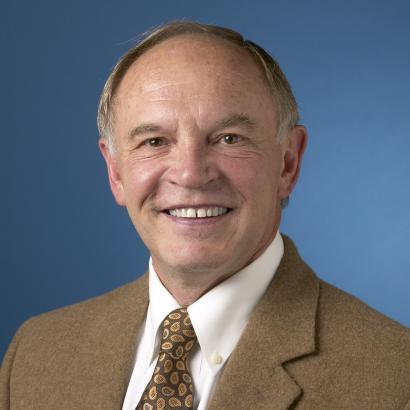
Terry Anderson
John and Jean De Nault Senior Fellow (adjunct)
Terry L. Anderson has been a senior fellow at the Hoover Institution since 1998 and is currently the John and Jean De Nault Senior Fellow (adjunct). He is the past president of the Property and Environment Research Center in Bozeman, MT, and a Professor Emeritus at Montana State University where he won many teaching awards during his 25 year career.
Anderson is one of the founders of “free market environmentalism,” the idea of using markets and property rights to solve environmental problems, and in 2015 published the third edition of his co-authored book by that title. He is author or editor of 39 books, including most recently, Unlocking the Wealth of Indian Nations (2016), exploring the institutional underpinnings of American Indian reservation economies.
In addition to publishing in professional journals, Terry Anderson speaks around the world and is often featured in the popular press, including frequent editorials in the Wall Street Journal. Dr. Anderson received his Ph.D. from the University of Washington in 1972 and has been a visiting scholar at Oxford University, Basel University, Clemson University, and Cornell, and a Fulbright Fellow at the University of Canterbury.
Terry is an avid outdoorsman who enjoys fly fishing, hiking, skiing, horseback riding, and archery hunting.
Read Full Bio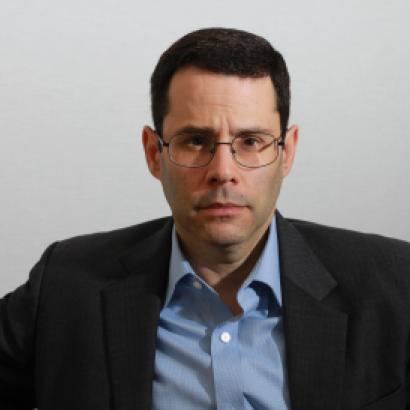
Michael Auslin
Payson J. Treat Distinguished Research Fellow
Michael Auslin, PhD, is the Payson J. Treat Distinguished Research Fellow at the Hoover Institution, Stanford University.
A historian by training, Auslin is the author of the forthcoming history National Treasure: How the Declaration of Independence Made America. He also writes The Patowmack Packet, a Substack on Washington, DC, and American history. His prior books include Asia’s New Geopolitics: Essays on Reshaping the Indo-Pacific and The End of the Asian Century: War, Stagnation, and the Risks to the World’s Most Dynamic Region. He has been a longtime contributor to The Wall Street Journal and his writing appears in other leading publications including the Financial Times, The Spectator, Law & Liberty, and Foreign Policy. He comments regularly for US and foreign print and broadcast media.
Previously an associate professor of history at Yale University, Auslin is a fellow of the Royal Historical Society and a senior fellow at the Foreign Policy Research Institute. Among his honors are being named a distinguished visiting scholar at the Library of Congress John W. Kluge Center, the American Heritage Partners Research Fellow at the American Revolution Institute of the Society of the Cincinnati, a Fulbright Scholar, a Young Global Leader by the World Economic Forum, and a German Marshall Fund Marshall Memorial Fellow. He serves on the board of the American Ditchley Foundation.
Read Full Bio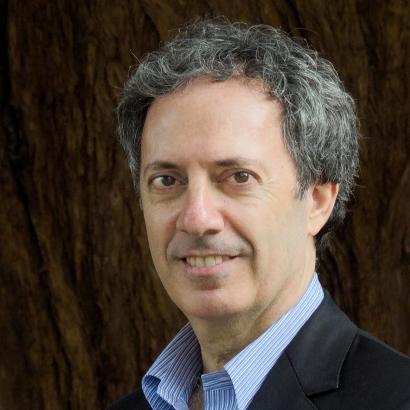
Peter Berkowitz
Tad and Dianne Taube Senior Fellow
Peter Berkowitz is the Tad and Dianne Taube Senior Fellow at the Hoover Institution, Stanford University.
In 2019-2021, he served as the Director of the State Department’s Policy Planning Staff, executive secretary of the department's Commission on Unalienable Rights, and senior adviser to the Secretary of State.
He is a 2017 recipient of the Bradley Prize.
He is a columnist for RealClearPolitics.
He serves as director of studies for The Public Interest Fellowship.
He is the author of Constitutional Conservatism: Liberty, Self-Government, and Political Moderation (Hoover Institution Press, 2013); Israel and the Struggle over the International Laws of War (Hoover Institution Press, 2012); Virtue and the Making of Modern Liberalism (Princeton University Press, 1999); and Nietzsche: The Ethics of an Immoralist (Harvard University Press, 1995).
He is the editor of seven collections of essays on political ideas and institutions published by the Hoover Institution: Renewing the American Constitutional Tradition (2014); Future Challenges in National Security and Law (2010); The Future of American Intelligence (2005); Terrorism, the Laws of War, and the Constitution: Debating the Enemy Combatant Cases (2005); Varieties of Conservatism in America (2004); Varieties of Progressivism in America (2004); and Never a Matter of Indifference: Sustaining Virtue in a Free Republic (2003).
He has written hundreds of articles, essays and reviews on a range of subjects for a variety of publications, including The American Interest, the American Political Science Review, The Atlantic, The Chronicle of Higher Education, the Claremont Review of Books, Commentary, First Things, Forbes.com, Haaretz, The Jerusalem Post, the London Review of Books, National Journal, National Review, The New Criterion, The New Republic, Policy Review, Politico, The Public Interest, the Times Literary Supplement, The Wall Street Journal, the Washington Post, The Weekly Standard, The Wilson Quarterly, and the Yale Law Journal.
In addition to teaching regularly in the United States and Israel, Dr. Berkowitz has led seminars on the principles of freedom and the American constitutional tradition for students from Burma at the George W. Bush Presidential Center and for Korean students at Underwood International College at Yonsei University in Seoul, South Korea.
He taught constitutional law and jurisprudence at George Mason University School of Law from 1999 to 2006, and political philosophy in the department of government at Harvard University from 1990 to 1999.
He holds a JD and a PhD in political science from Yale University; an MA in philosophy from the Hebrew University of Jerusalem; and a BA in English literature from Swarthmore College.
Read Full Bio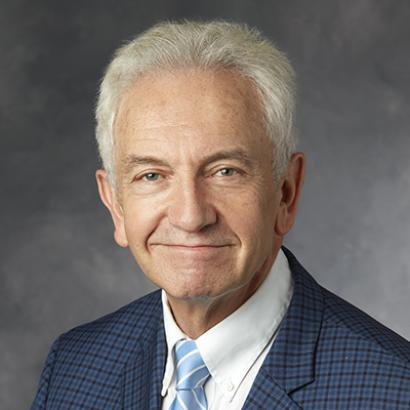
Russell A. Berman
Senior Fellow
Russell A. Berman, the Walter A. Haas Professor in the Humanities at Stanford University, is a senior fellow at the Hoover Institution and a co-chair of The Working Group on the Middle East and the Islamic World.
At Stanford, he is a member of both the Department of German Studies and the Department of Comparative Literature at Stanford, and he specializes on politics and culture in Europe as well as in the Middle East. He has served in numerous administrative positions at Stanford, including as chair of the Senate of the Academic Council. He is a member of the National Humanities Council and, during the Trump administration, served as a Senior Advisor on the Policy Planning Staff of the State Department.
He is the author of numerous articles and books including Enlightenment or Empire: Colonial Discourse in German Culture (1998) and The Rise of the Modern German Novel: Crisis and Charisma (1986), both of which won the Outstanding Book Award of the German Studies Association (in 2000 and 1987, respectively). Hoover Institution Press published his books In Retreat: America's Withdrawal from the Middle East (2014), Freedom or Terror: Europe Faces Jihad (2010), and Anti-Americanism in Europe: A Cultural Problem (2004). His other books include Fiction Sets You Free: Literature, Liberty, and Western Culture (2007), Cultural Studies of Modern Germany: Representation and Nationhood (1993), Modern Culture and Critical Theory: Art, Politics, and the Legacy of the Frankfurt School (1989), and Between Fontane and Tucholsky: Literary Criticism and the Public Sphere in Wilhelmine Germany (1983). He has published numerous articles in the Hoover Digest, Defining Ideas, and Advancing a Free Society as well as in The Caravan, the publication of the Middle East Working Group.
Berman has received many honors and awards including a Mellon Faculty Fellowship at Harvard University (1982–83), an Alexander von Humboldt Fellowship (1988–89), and the Bundesverdienstkreuz of the Federal Republic of Germany (1997).
Berman received his BA in 1972 from Harvard and his doctorate from Washington University in 1979.
Read Full Bio
Michael J. Boskin
Rose and Milton Friedman Senior Fellow on Public Policy
Michael J. Boskin is the Rose and Milton Friedman Senior Fellow on Public Policy at the Hoover Institution and the Tully M. Friedman Professor of Economics at Stanford. He is also a research associate of the National Bureau of Economic Research. In addition, he advises governments and businesses globally.
Boskin served as chairman of the President’s Council of Economic Advisers (CEA) from 1989 to 1993, when he helped resolve the Third World Debt and Saving and Loan financial crises, and place the first effective controls on government spending while protecting the defense budget. His CEA was rated by the Council for Excellence in Government as one of the five most respected agencies in the federal government. He earlier served on presidential candidate Ronald Reagan’s Tax Policy Task Force, helping develop the policies that, during Reagan’s presidency, substantially lowered marginal tax rates, indexed tax brackets for inflation, accelerated depreciation, and created IRAs and 401Ks, the economic rationale for which was predicated on his research on the effects of taxes on saving. He later chaired the highly influential blue-ribbon Advisory Commission to Study the Consumer Price Index, whose report has transformed the way government statistical agencies around the world measure inflation, GDP, and productivity.
Boskin serves on several corporate and philanthropic boards of directors, including those of the Oracle Corporation, the Koret Foundation and Bloom Energy.
In addition to Stanford and the University of California, Boskin has taught at Harvard and Yale. The author of more than one hundred fifty books and articles, he is internationally recognized for his research on world economic growth, tax and budget theory and policy, US saving and consumption patterns, and the implications of changing technology and demography on capital, labor, and product markets. His op-eds appear regularly in the Wall Street Journal and other leading newspapers. He also writes a bimonthly column on global economics and politics syndicated in 145 countries.
Boskin has received numerous professional awards and citations, including Stanford’s Distinguished Teaching Award in 1988; the National Association of Business Economists’ Abramson Award for outstanding research and its Distinguished Fellow Award; the Medal of the President of the Italian Republic in 1991 for his contributions to global economic understanding; and the 1998 Adam Smith Prize for outstanding contributions to economics.
Boskin received his BA with highest honors and the Chancellor’s Award as outstanding undergraduate from the University of California–Berkeley, where he also received his MA and PhD.
His research papers and op-eds are available at the Hoover Institution Archives and on his personal website. His current research focuses on the defense budget, federalism, the political economy of redistribution, and more generally, public economics and macroeconomics.
Read Full Bio
David Brady
Davies Family Senior Fellow, Emeritus
David Brady is the Davies Family Senior Fellow, Emeritus at the Hoover Institution and the Bowen H. and Janice Arthur McCoy Professor of Political Science in the Stanford Graduate School of Business.
He has published seven books and more than a hundred papers in journals and books. Among his most recent books are Leadership and Growth (World Bank Publications, 2010) with Michael Spence, Revolving Gridlock: Politics and Policy from Carter to Bush II (Westview Press, 2006), and Red and Blue Nation? Characteristics and Causes of America’s Polarized Politics with Pietro Nivola (Brookings Institution Press, 2007). His recent articles include “Why Is Health Care Reform So Difficult?” with Daniel Kessler, Journal of Health Politics, Policy and Law, April 2010; “Putting the Public’s Money Where Its Mouth Is” with Daniel Kessler, Health Affairs: The Policy Journal of the Health Sphere, August 2009, pages 917–25; “Leadership and Politics: A Perspective from the Growth Commission,” with Michael Spence, Oxford Review of Economic Policy, 25, no. 2 (2009): 205–18; “The 2010 Elections: Why Did Political Science Forecasts Go Awry?” with Morris P. Fiorina and Arjun Wilkins, 2011.
Brady has been on continual appointment at Stanford University since 1986, where he has served as associate dean for Academic Affairs in the Graduate School of Business (GSB) and as vice provost for Distance Learning. He has twice been a fellow at the Center for Advanced Study in the Behavioral Sciences and was elected to the American Academy of Arts and Sciences in 1987. He presently holds the Bowen H. and Janice Arthur McCoy Professorship in Ethics at the Business School and was deputy director of the Hoover Institution from 2004-2014.
During his teaching career, he won the Dinkelspiel Award for service to undergraduates, the Richard Lyman Prize for service to alumni, the Bob Davies Award and the Jaedicke Silver Cup from the GSB, and the first Phi Beta Kappa Teaching Award given at Stanford. He also won the George Brown Teaching Award at Rice University.
Read Full Bio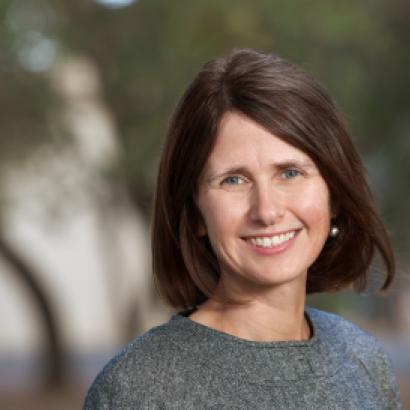
M. Kate Bundorf
M. Kate Bundorf was a senior fellow at the Hoover Institution. Bundorf is an associate professor of health research and policy at the Stanford University School of Medicine, a Stanford Health Policy Fellow, and a senior fellow at the Stanford Institute for Economics and Policy Research. She is also a research associate at the National Bureau of Economic Research.
Bundorf received MBA and MPH degrees from the University of California–Berkeley and a PhD from the Wharton School. She was a Fulbright Lecturer and visiting professor at Fudan University School of Public Health in Shanghai, China, in 2009 and 2010. Her research, which focuses on health insurance and health-care-provider markets, has been published in leading economics and health-policy journals and has received funding from the US National Institutes of Health, the Agency for Health Care Research and Quality, the Robert Wood Johnson Foundation, the National Institute for Health Care Management, and the Patient-Centered Outcomes Research Institute. She received the 13th Annual Health Care Research Award from the National Institute for Health Care Management in 2007 and was a finalist for the award in 2013. She is a co-editor of the Journal of Health Economics and the International Journal of Health Economics. She has served on the Panel of Health Advisers for the Congressional Budget Office and the Technical Review Panel for the Medicare Trustees Report.
Read Full Bio
Jeffrey Clemens
Senior Fellow (adjunct)
Jeffrey (Jeff) Clemens is an Associate Professor of Economics at the University of California at San Diego (UCSD). Prior to his arrival at UCSD, Professor Clemens obtained both his BA and PhD in Economics at Harvard University. Subsequently, he has spent two years at the Stanford Institute for Economic Policy Research, one as a Postdoctoral Scholar and one as a visiting Assistant Professor. In addition to his current position at UCSD, Professor Clemens is a Research Associate at the National Bureau of Economic Research and a CESifo Network Fellow.
Professor Clemens has a research portfolio spanning the economics of health insurance regulation, health care payment systems, minimum wages, and the finances of state and local governments. His ongoing projects focus primarily on the economic drivers of medical innovation, on the fiscal effects of the COVID-19 pandemic, and on understanding the broad set of margins through which firms have responded to minimum wage increases in recent years. Jeff’s research has appeared in journals including the American Economic Review, the Journal of Political Economy, the Journal of Economic Perspectives, American Economic Journal: Economic Policy, American Economic Journal: Applied Economics, and a number of leading field journals. He currently serves as a Co-Editor at both the Journal of Public Economics and the Journal of Health Economics.
Read Full Bio
John H. Cochrane
Rose-Marie and Jack Anderson Senior Fellow
John H. Cochrane is the Rose-Marie and Jack Anderson Senior Fellow of the Hoover Institution at Stanford University.
His monetary economics publications include the book The Fiscal Theory of the Price Level and articles on monetary policy and inflation. His finance publications include the book Asset Pricing and articles on dynamics in stock and bond markets, the volatility of exchange rates, the term structure of interest rates, the returns to venture capital, liquidity premiums in stock prices, the relation between stock prices and business cycles, and option pricing. He has also written articles on macroeconomics, health insurance, time-series econometrics, financial regulation, and other topics. He was a coauthor of The Squam Lake Report. He writes occasional Op-eds, mostly in the Wall Street Journal, and blogs as “the Grumpy Economist” at grumpy-economist.com. He recently created the Coursera online course “Asset Pricing.”
Cochrane is also a Senior Fellow of the Stanford Institute for Economic Policy Research (SIEPR), Professor of Finance and Economics (by Courtesy) at Stanford GSB, a Research Associate of the National Bureau of Economic Research, and an Adjunct Scholar of the CATO Institute. He is a past President and Fellow of the American Finance Association, and a Fellow of the Econometric Society. He has been an Editor of the Journal of Political Economy, and associate editor of several journals including the Journal of Monetary Economics, Journal of Business, and Journal of Economic Dynamics and Control. He was a director of the NBER asset pricing program. Awards include the Bradley Prize, the APEE Adam Smith award, the TIAA-CREF Institute Paul A. Samuelson Award for Asset Pricing, the Chookaszian Endowed Risk Management Prize, the Faculty Excellence Award for MBA teaching and the McKinsey Award for Outstanding Teaching.
Before coming to Hoover, Cochrane was the AQR Capital Management Distinguished Service Professor of Finance at the University of Chicago Booth School of Business, where he taught the MBA class “Advanced Investments” and a variety of PhD classes in Asset Pricing and Monetary Economics. Cochrane earned a Bachelor’s degree in Physics at MIT, and earned his Ph.D. in Economics at the University of California at Berkeley. He was at the Economics Department of the University of Chicago before joining the Booth School in 1994, and visited UCLA Anderson School of Management in 2000-2001.
Outside of academic pursuits Cochrane is a competition sailplane pilot, and enjoys cycling, windsurfing, skiing, and other outdoor activities.
Read Full Bio
Steven J. Davis
Thomas W. and Susan B. Ford Senior Fellow | Director of Research
Steven Davis is the Thomas W. and Susan B. Ford Senior Fellow and Director of Research at the Hoover Institution, and Senior Fellow at the Stanford Institute for Economic Policy Research (SIEPR). He was on the faculty at the University of Chicago Booth School of Business for more than 35 years, including service as deputy dean of the faculty.
He is also a research associate of the National Bureau of Economic Research, visiting scholar at the Federal Reserve Bank of Atlanta, senior adviser to the Brookings Papers on Economic Activity, advisor to the Monetary Authority of Singapore, elected fellow of the Society of Labor Economists, IZA Research Fellow, and senior academic fellow of the Asian Bureau of Finance and Economic Research. He hosts Economics, Applied – a video podcast series sponsored by the Hoover Institution.
Davis is a co-creator of the Economic Policy Uncertainty Indices, the Survey of Business Uncertainty, the U.S. Survey of Working Arrangements and Attitudes, the Global Survey of Working Arrangements, the Work-from-Home Map project, and the Stock Market Jumps project. He cofounded and co-organizes the Asian Monetary Policy Forum, held annually in Singapore.
Awards and Honors:
Addington Prize in Measurement (2012)
Society of Labor Economics, Elected Fellow (2015)
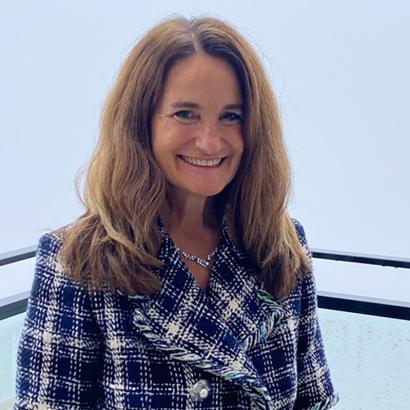
Elizabeth Economy
Hargrove Senior Fellow
Elizabeth Economy is the Hargrove Senior Fellow and co-chair of the Program on the US, China, and the World at the Hoover Institution. From 2021 to 2023, she served as the senior advisor for China in the Department of Commerce. Economy was previously at the Council on Foreign Relations, where she served as the C.V. Starr Senior Fellow and director for Asia Studies for over a decade.
Economy is an acclaimed author and expert on Chinese domestic and foreign policy. Her most recent book is The World According to China (Polity, 2022). She is also the author of The Third Revolution: Xi Jinping and the New Chinese State (Oxford University Press, 2018), which was shortlisted for the Lionel Gelber Prize for foreign affairs books, and By All Means Necessary: How China’s Resource Quest Is Changing the World (Oxford University Press, 2014) with Michael Levi. Her book The River Runs Black: The Environmental Challenge to China’s Future (Cornell University Press, 2004; 2nd edition, 2010) was named one of the top fifty sustainability books by the University of Cambridge, won the 2005 International Convention on Asia Scholars Award for the best social sciences book published on Asia, and was listed as one of the top ten books of 2004 by The Globalist, as well as one of the best business books of 2010 by Booz Allen Hamilton’s Strategy+Business magazine. She also coedited China Joins the World: Progress and Prospects (Council on Foreign Relations Press, 1999) with Michel Oksenberg and The Internationalization of Environmental Protection (Cambridge University Press, 1997) with Miranda Schreurs. Her books have been translated into a dozen languages.
She has published articles in foreign policy and scholarly journals including Foreign Affairs, Harvard Business Review, and Foreign Policy, and op-eds in the New York Times, the Washington Post, and the Wall Street Journal, among other news outlets. Economy is a frequent guest on nationally broadcast television and radio programs, has testified before Congress on numerous occasions, and regularly consults for US government agencies and companies. In June 2018, Economy was named one of the “10 Names That Matter on China Policy” by Politico Magazine.
Economy serves on the board of managers of Swarthmore College, as well as on the boards of the National Committee on US-China Relations and the National Endowment for Democracy. She is a member of the Aspen Strategy Group and the Council on Foreign Relations. In addition, she serves as the East Asia book reviewer for Foreign Affairs Magazine. At the World Economic Forum, she served as a member and then vice chair of the Global Agenda Council on the Future of China (2008–14) and a member of the Global Agenda Council on the United States (2014–16). She has taught undergraduate- and graduate-level courses at Columbia University, Johns Hopkins University's Paul H. Nitze School of Advanced International Studies, and the University of Washington's Jackson School of International Studies.
Economy received her BA with honors from Swarthmore College, her AM from Stanford University, and her PhD from the University of Michigan. In 2008, she received an honorary doctor of law degree from Vermont Law School.
Read Full Bio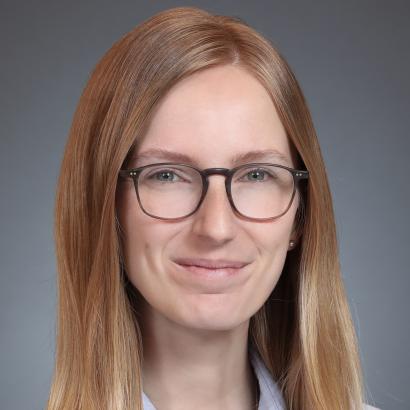
Elizabeth Elder
Hoover Fellow
Dr. Elizabeth Mitchell Elder studies how and when Americans get the resources they need to demand better outcomes from their elected officials. She is particularly interested in knowledge, efficacy, trust, and the role of place and social context in political attitudes.
Her book, Company Towns: Industry Power and the Historical Foundations of Public Mistrust, investigates the role of single-industry dominance on government performance and citizen trust, with a focus on former coal-mining areas of the eastern United States. The book is forthcoming with the University of Chicago Press.
Elder received her PhD in political science from the University of California–Berkeley and her bachelor’s degree from Indiana University.
Read Full Bio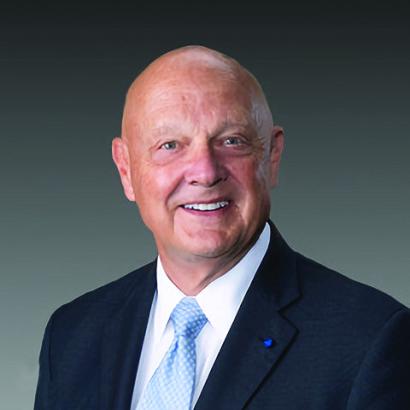
Admiral James O. Ellis Jr.
Annenberg Distinguished Visiting Fellow
Admiral James O. Ellis Jr. is Annenberg Distinguished Visiting Fellow at the Hoover Institution, where he oversees both the Global Policy and Strategy Initiative and the George P. Shultz Energy Policy Working Group. He retired from a 39-year career with the US Navy in 2004. He has also served in the private and nonprofit sectors in areas of energy and nuclear security.
A 1969 graduate of the US Naval Academy, Ellis was designated a naval aviator in 1971. His service as a navy fighter pilot included tours with two carrier-based fighter squadrons and assignment as commanding officer of an F/A-18 strike fighter squadron. In 1991, he assumed command of the USS Abraham Lincoln, a nuclear-powered aircraft carrier. After selection to rear admiral, in 1996, he served as a carrier battle group commander, leading contingency response operations in the Taiwan Strait.
His shore assignments included numerous senior military staff tours. Senior command positions included commander in chief, US Naval Forces, Europe, and commander in chief, Allied Forces, Southern Europe, during a time of historic NATO expansion. He led US and NATO forces in combat and humanitarian operations during the 1999 Kosovo crisis.
Ellis’s final assignment in the navy was as commander of the US Strategic Command during a time of challenge and change. In this role, he was responsible for the global command and control of US strategic and space forces, reporting directly to the secretary of defense.
After his naval career, he joined the Institute of Nuclear Power Operations (INPO) as president and chief executive officer. INPO, sponsored by the commercial nuclear industry, is an independent, nonprofit organization whose mission is to promote the highest levels of safety and reliability in the operation of commercial nuclear electric generating plants. He retired from INPO in 2012.
Ellis is also the former board chair of Level 3 Communications and served on the board of Lockheed Martin Corporation and Dominion Energy. In 2006, he became a member of the Military Advisory Panel to the Iraq Study Group. In 2009, he completed three years of service on the President’s Intelligence Advisory Board. A former board chair of the nonprofit Space Foundation, in 2018 he was appointed chairman of the Users’ Advisory Group to the Vice President’s National Space Council, where he served until 2022.
Ellis holds a master’s degree in aerospace engineering from the Georgia Institute of Technology. He was inducted into the school’s Engineering Hall of Fame in 2005. He completed US Navy Nuclear Power Training and was qualified in the operation and maintenance of naval nuclear propulsion plants. He is a graduate of the Navy Test Pilot School and the Navy Fighter Weapons School (Top Gun). In 2013, Ellis was elected to the National Academy of Engineering for “contributions to global nuclear safety.”
Read Full Bio
Sir Niall Ferguson
Milbank Family Senior Fellow
Sir Niall Ferguson, MA, DPhil, FRSE, is the Milbank Family Senior Fellow at the Hoover Institution, Stanford University, and a senior faculty fellow of the Belfer Center for Science and International Affairs at Harvard. He is the author of sixteen books, including The Pity of War, The House of Rothschild, Empire, Civilization and Kissinger, 1923-1968: The Idealist, which won the Council on Foreign Relations Arthur Ross Prize. He is an award-making filmmaker, too, having won an international Emmy for his PBS series The Ascent of Money. His 2018 book, The Square and the Tower, was a New York Times bestseller and also adapted for television by PBS as Niall Ferguson’s Networld. In 2020 he joined Bloomberg Opinion as a columnist. In addition, he is the founder and managing director of Greenmantle LLC, a New York-based advisory firm, a co-founder of Ualá, a Latin American financial technology company, and a trustee of the New York Historical Society, the London-based Centre for Policy Studies, and the newly founded University of Austin. His latest book, Doom: The Politics of Catastrophe, was published in 2021 by Penguin and was shortlisted for the Lionel Gelber Prize.
Read Full Bio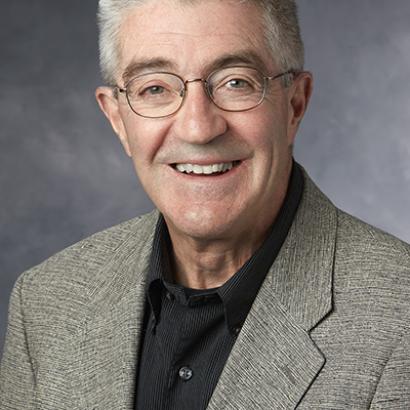
Morris P. Fiorina
Senior Fellow
Morris Fiorina is the Wendt Family Professor of Political Science at Stanford University and a senior fellow of the Hoover Institution.
Fiorina has studied American politics, with special emphasis on elections, public opinion and representation, for more than fifty years. His books include Congress—Keystone of the Washington Establishment, 1977), Retrospective Voting in American National Elections, 1981) and Divided Government, 1992). His groundbreaking book on polarization, Culture War: The Myth of a Polarized America (with Samuel Abrams and Jeremy Pope, 2004) went through three editions, was noted in hundreds of national media outlets, and adopted in classes at more than 700 different colleges and universities. Successor books included Disconnect: The Breakdown of Representation in American Politics (with Samuel Abrams, 2009) and Unstable Majorities: Polarization, Party Sorting and Political Stalemate, 2017. Hoover Press will publish his current work as Unstable Majorities Continue: The Trump Elections, in 2026.
Fiorina has served on the editorial boards of more than a dozen journals in political science, law, political economy, and public policy, and served as chairman of the Board of the American National Election Studies. He has been elected to the American Academy of Arts and Sciences, the American Academy of Political and Social Sciences, and the National Academy of Sciences. He has received two career achievement awards from organized sections of the American Political Science Association.
Fiorina received his BA degree from Allegheny College and his MA and PhD from the University of Rochester and taught at Caltech and Harvard coming to Stanford in 1998. He lives in Portola Valley, California with his wife who has humored him for more than half a century.
Read Full Bio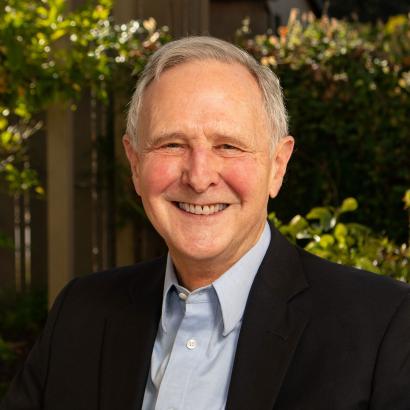
Eric Hanushek
Paul and Jean Hanna Senior Fellow in Education
Eric Hanushek is the Paul and Jean Hanna Senior Fellow at the Hoover Institution of Stanford University and one of the world’s leading scholars in the economics of education. His influential research has shaped education policy globally, with widely cited studies on teacher effectiveness, school accountability, class size, and the economic returns to educational quality. In 2021, he received the Yidan Prize for Education Research, the field’s most prestigious international award.
He has authored or edited 26 books and more than 300 articles, and he serves as a research associate at the National Bureau of Economic Research and a fellow of both the Society of Labor Economists and the American Educational Research Association. His public service includes roles as a commissioner on the U.S. Department of Education’s Equity and Excellence Commission, chair of the National Board for Education Sciences (2008–2010), Deputy Director of the Congressional Budget Office (1983–1985), and member of the National Assessment Governing Board (2019–2023). A member of the National Academy of Education and the International Academy of Education, he earned his Ph.D. in economics from the Massachusetts Institute of Technology after graduating as a Distinguished Graduate of the U.S. Air Force Academy.
Read Full Bio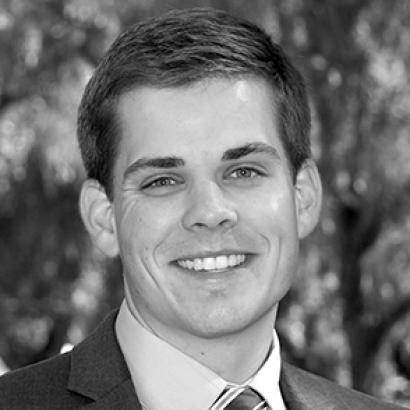
Daniel Heil
Policy Fellow
Danny Heil is a policy fellow at the Hoover Institution whose focus is on the federal budget, tax policy, and the federal antipoverty programs.
Heil’s interests include replacing failed policies with state and federal initiatives that alleviate poverty by encouraging workforce participation and human capital development. He has also written on the perils of telecommunication regulations and the economic effects of e-business.
Heil served as Governor Jeb Bush’s economic policy adviser during the 2016 presidential campaign, counseling him on the federal budget, tax policy, and the federal antipoverty programs.
Heil received a master’s of public policy degree with a specialization in economics and American politics from Pepperdine University.
Read Full Bio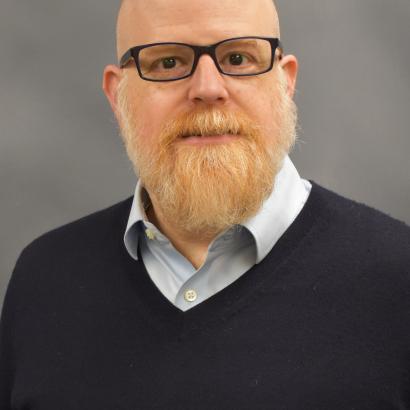
Erik Hurst
Visiting Fellow
Erik Hurst is the V. Duane Rath Professor of Economics and John E. Jeuck Faculty Fellow at the University of Chicago, Booth School of Business. He is also the current deputy director of the University of Chicago’s Becker-Friedman Institute and a visiting fellow at the Hoover Institution.
He serves as a research associate for the National Bureau of Economic Research, a visiting scholar at the Federal Reserve Bank of Chicago, and a coeditor of the National Bureau of Economics Macroeconomics Annual. From 20142017, Hurst served as a coeditor for the Journal of Political Economy.
Professor Hurst is a macroeconomist whose research has advanced the understanding of labor markets, consumer theory, housing markets, regional economics, mortgage markets, and entrepreneurship. His research on these topics has appeared in top economic journals and is frequently cited in The Economist, the Wall Street Journal, the Washington Post, and the New York Times.
Professor Hurst received the 2006 TIAA-CREF Paul Samuelson Award for the best published paper dealing with household financial security and was also awarded the 2012 Ewing Marion Kauffman Prize Medal for Distinguished Research in Entrepreneurship bestowed annually to one scholar under the age of forty whose research has made a significant contribution to the entrepreneurship literature.
In both 2008 and 2010, the Chicago Booth students awarded Professor Hurst the Emory Williams Award for Teaching Excellence. In 2013 the students awarded him their Faculty Excellence Award for his commitment to teaching. And in 2017 Hurst was awarded the McKinsey prize for best teacher at Chicago Booth.
Professor Hurst earned a BA in economics in 1993 from Clarkson University. He went on to earn an MA in economics in 1995 and a PhD in economics in 1999 from the University of Michigan.
Read Full Bio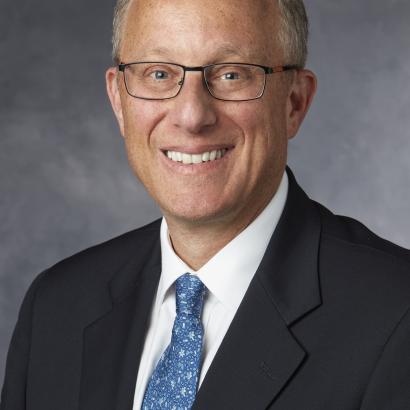
Dan Kessler
Director of Research
Daniel Kessler is the Keith and Jan Hurlbut Senior Fellow and Director of Research at the Hoover Institution and a professor at the Graduate School of Business at Stanford University, where he teaches courses on economics, public policy, and the health care industry. He is also a professor at the Stanford Law School.
Among his publications are, with Mark McClellan, “The Effect of Hospital Ownership on Medical Productivity,” in the RAND Journal of Economics (2002), and “Designing Hospital Antitrust Policy to Promote Social Welfare,” which appeared in Frontiers in Health Policy Research. His books include a forthcoming second edition of Healthy, Wealthy, and Wise: Five Steps to a Better Health Care System (Hoover Institution Press, 2011), coauthored with Leonard and Shirley Ely Senior Fellow John Cogan and R. Glenn Hubbard, and Regulation versus Litigation: Perspectives from Economics and Law (University of Chicago Press, 2010).
He is the holder of a PhD in economics from the Massachusetts Institute of Technology and a JD from Stanford Law School.
Read Full Bio
Stephen D. Krasner
Senior Fellow, Emeritus
Stephen Krasner is an emeritus senior fellow at the Hoover Institution.
He was also a member of the political science department at Stanford University, where he held the Graham H. Stuart Chair in International Relations and was a senior fellow in the Freeman Spogli Institute. From 2005 to 2007 he served under Secretary of State Condoleezza Rice as the director of policy planning at the State Department where he worked on foreign assistance reform and other projects. Krasner also spent a year in Washington at the beginning of the Bush administration, first on policy planning at the State Department and then with Rice at the National Security Council. He helped formulate the Millennium Challenge Account, a new approach to development assistance that ties increased aid to improving governance, such as curbing corruption.
At Stanford, Krasner has served as deputy director of the Freeman Spogli Institute and as director of the institute’s Center on Democracy, Development and the Rule of Law. In 2003 and 2004 he served as a member of the board of the United States Institute of Peace.
He came to Stanford in 1981 from Harvard University and the University of California, Los Angeles. At Stanford, he was chairman of the political-science department from 1984 to 1991. He is widely known in academic circles for his work on international political economy and sovereignty.
His major publications include Defending the National Interest: Raw Materials Investment and American Foreign Policy (1978), Structural Conflict: The Third World against Global Liberalism (1985), and Sovereignty: Organized Hypocrisy (1999). Publications he has edited include International Regimes (1983), Exploration and Contestation in the Study of World Politics (co-editor, 1999), and Problematic Sovereignty: Contested Rules and Political Possibilities (2001). He received a B.A. degree in history from Cornell University, an M.A. degree in international affairs from Columbia University and a Ph.D. degree in political science from Harvard. He is a fellow of the American Academy of Arts and Science and a member of the Council on Foreign Relations.
Read Full Bio
Steven Koonin
Edward Teller Senior Fellow
Steven E. Koonin is the Edward Teller Senior Fellow at Stanford University’s Hoover Institution. Before joining Stanford in 2024, he was a professor at New York University, with appointments in the Stern School of Business, the Tandon School of Engineering, and the Department of Physics. He founded NYU’s Center for Urban Science and Progress, which focuses research and education on the acquisition, integration, and analysis of big data for big cities.
Prior to his time at NYU, Koonin served as undersecretary for science in the US Department of Energy under President Obama from 2009 to 2011, where his portfolio included the climate research program and energy technology strategy. He was the lead author of the US Department of Energy’s Strategic Plan (2011) and the inaugural Department of Energy Quadrennial Technology Review (2011). Before joining the government, Koonin spent five years as chief scientist for BP, researching renewable energy options to move the company “beyond petroleum.”
For almost 30 years, Koonin was a professor of theoretical physics at Caltech. He also served for nine years as Caltech’s vice president and provost, facilitating the research of more than 300 scientists and engineers and catalyzing the development of the world’s largest optical telescope, as well as guiding research initiatives in computational science, bioengineering, and the biological sciences.
Koonin is a member of the National Academy of Sciences. His other memberships include the American Academy of Arts and Sciences and JASON, a group of scientists who solve technical problems for the US government; he served as JASON’s chair for six years. He chaired the National Academies’ Divisional Committee for Engineering and Physical Sciences from 2014 to 2019 and was a trustee of the Institute for Defense Analyses from 2014‒24. He is currently an independent governor of the Lawrence Livermore National Laboratory and has served in similar roles for the Los Alamos, Sandia, Brookhaven, and Argonne national laboratories.
Koonin has a BS in physics from Caltech and a PhD in theoretical physics from MIT. He is an award-winning classroom teacher and his public lectures are noted for their clarity in conveying complex subjects. He is the author of the classic 1985 textbook Computational Physics, which introduced methodology for building computer models of complex physical systems. He has published some 200 peer-reviewed papers in the fields of physics and astrophysics, scientific computation, energy technology and policy, and climate science, and he has been the lead author on multiple book-length reports, including two National Academies studies. His bestselling book Unsettled: What Climate Science Tells Us, What It Doesn’t, and Why It Matters was published in 2021.
Read Full Bio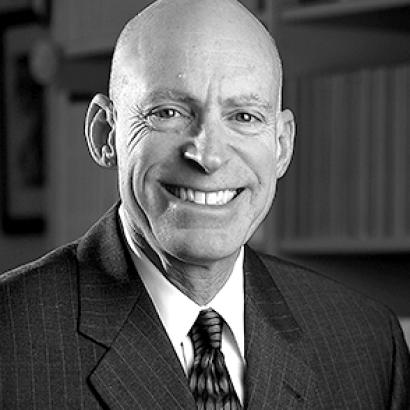
Edward Paul Lazear
Morris Arnold and Nona Jean Cox Senior Fellow (joint)
Edward P. Lazear passed away on November 23, 2020.
Lazear was the Morris Arnold and Nona Jean Cox Senior Fellow at the Hoover Institution and the Davies Family Professor of Economics at Stanford University's Graduate School of Business. Lazear served at the White House from 2006 to 2009, where he was chairman of the President's Council of Economic Advisers. Before coming to Stanford, he taught at the University of Chicago.
Lazear received numerous honors and prizes: among them, the 1998 Leo Melamed Biennial Prize for the best research by a business school professor, the 2004 Prize for Outstanding Contributions to Labor Economics from the Institute for the Study of Labor, and the 2006 Jacob Mincer Prize for lifetime achievement in the field of labor economics. He held four honorary degrees, the most recent from the Copenhagen Business School (2013).
Founding editor of the Journal of Labor Economics and founder of the Society of Labor Economists, he was also an elected fellow of the American Academy of Arts and Sciences, the American Association for the Advancement of Science, the Econometric Society, and the Society of Labor Economists. He was a research associate of the National Bureau of Economic Research and was a member of the National Academy of Sciences Board on Testing and Assessment. Lazear was the first vice-president and then president of the Society of Labor Economists.
Lazear wrote or edited a dozen books including Personnel Economics (MIT Press, 1995), which expanded on his 1993 Wicksell Lectures. He published more than one hundred papers in leading professional journals.
He received the Distinguished Teaching Award from Stanford University's Graduate School of Business in 1994 and the Distinguished Service Award from Stanford University in 2002.
Lazear held AB and AM degrees from the University of California, Los Angeles, and a PhD from Harvard University.
Read Full Bio
David L. Leal
Senior Fellow (adjunct)
David L. Leal is a senior fellow (adjunct) at the Hoover Institution and a professor of government at the University of Texas at Austin.
His primary academic interest is Latino politics, and his work explores the political and policy implications of demographic change in the United States. He teaches classes on Latino politics, immigration policy, politics and religion, the military and American politics, and British politics and government. He has written one book, edited eight volumes, and published over fifty articles in political science and other social science journals. He has been an American Political Science Association Congressional Fellow in the office of a US senator, a Fulbright Distinguished Lecturer in Japan, and an Associate Member at Nuffield College at Oxford University. At UT-Austin, he is a Senior Fellow in the Civitas Institute and an inaugural faculty affiliate of the School of Civic Leadership.
He is a member of the editorial boards of Social Science Quarterly, Education Next, Nations & Nationalism, and Journal of School Choice, and he was elected to a three-year term (2019-2022) on the Council of the American Political Science Association.
Read Full Bio
Ross Levine
Booth Derbas Family/Edward Lazear Senior Fellow
Ross Levine is the Booth Derbas Family/Edward Lazear Senior Fellow at the Hoover Institution and co-director of Hoover’s Financial Regulation Working Group. He is a founding member of the Hoover Program on the Foundations for Economic Prosperity. Levine is also a Research Associate at the National Bureau of Economic Research. Prior to joining Hoover Levine was a faculty member at the University of California, Berkeley’s Haas School of Business.
Levine’s research explains how financial regulations and the functioning of financial systems influence economic prosperity, including growth, stability, technological innovation, entrepreneurship, job opportunities, poverty, income distribution, and the environment. Besides authoring or editing six books, he has published nearly 200 articles in leading economics, finance, and management journals.
Two of his books, Rethinking Bank Regulation: Till Angels Govern and Guardians of Finance: Making Regulators Work for Us, along with numerous articles, highlight the complexities of regulatory policies. He demonstrates that these policies often hinder competition, disrupt the efficient allocation of capital, and promote excessive risk-taking, which negatively impacts living standards.
Levine’s research resonates beyond academia, shaping dialogue and policies at major international institutions like the World Bank, International Monetary Fund, and European Central Bank. He serves as an advisor to central banks and regulatory authorities worldwide, and his work has been highlighted in leading media outlets such as the Wall Street Journal, Financial Times, The Economist, The Washington Post, and Barron’s.
Having earned a BA from Cornell University and a PhD in economics from UCLA, Levine worked at the Board of Governors of the Federal Reserve System and the World Bank, where he conducted and managed research and operational programs. In addition to his research and policy contributions, Levine has received several teaching awards at Berkeley, Brown University, and the University of Virginia.
Read Full Bio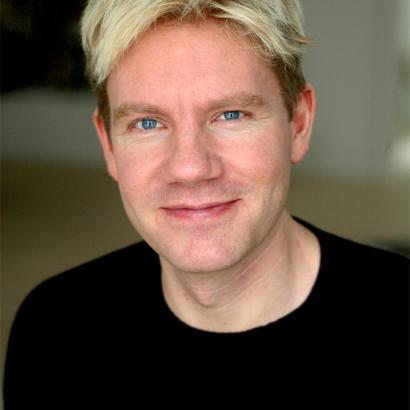
Bjorn Lomborg
Visiting Fellow
Bjorn Lomborg is a visiting fellow at the Hoover Institution.
Dr. Bjorn Lomborg is president of the Copenhagen Consensus Center and visiting professor at Copenhagen Business School. His numerous books include The Skeptical Environmentalist, Cool It, How to Spend $75 Billion to Make the World a Better Place, The Nobel Laureates’ Guide to the Smartest Targets for the World: 2016–2030, and Prioritizing Development: A Cost Benefit Analysis of the United Nation’s Sustainable Development Goals.
The Copenhagen Consensus Center is a think tank that researches the smartest solutions for the world's biggest problems, advising policy makers and philanthropists how to spend their money most effectively. It brings together many of the world’s top economists, including seven Nobel laureates, to set priorities both at a global and a country or state level. It is the winner of Prospect magazine’s 2016 Think Tank of the Year award in the International Affairs category for think tanks based in the United States. The center’s work was commended by the judges as being “truly innovative and global in its scope.” In the 2018 Global Go To Think Tank Index Report, Copenhagen Consensus was once again acknowledged for having launched one of the top 20 advocacy campaigns anywhere in the world, for the sixth year running. The Economist said: “Copenhagen Consensus is an outstanding, visionary idea and deserves global coverage.”
For this work, Lomborg was named one of Time magazine’s 100 most influential people in the world. In 2011 and 2012, Lomborg was named among the Top 100 Global Thinkers by Foreign Policy “for looking more right than ever on the politics of climate change.” In 2008 he was named “one of the 50 people who could save the planet” by the UK Guardian. In 2005 and 2008, Foreign Policy and Prospect magazine called him "one of the top 100 public intellectuals,” and in 2008 Esquire named him “one of the world’s 75 most influential people of the 21st century.”
Lomborg is a frequent participant in public debates on policy issues. His analysis and commentaries appear regularly in such prestigious publications as the New York Times, the Washington Post, the Wall Street Journal, USA Today, the Economist, Foreign Affairs, the Atlantic, Forbes, the Globe and Mail, theGuardian, the Telegraph, the Sunday Times, the Australian, the Los Angeles Times, the Boston Globe, and Der Spiegel.
Read Full Bio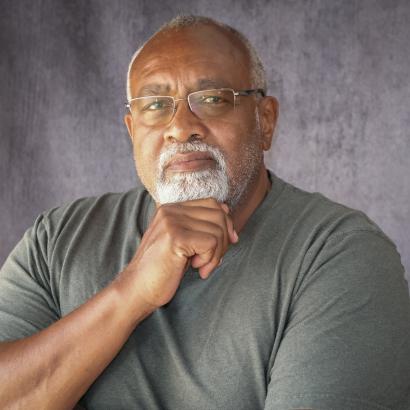
Glenn Loury
Distinguished Visiting Fellow
Glenn C. Loury is a distinguished visiting fellow at the Hoover Institution and the Merton P. Stoltz Professor of the Social Sciences, Emeritus, at Brown University. As an academic economist, he has published widely in the area of applied microeconomic theory. He has been elected as a distinguished fellow of the American Economic Association, a fellow of the Econometric Society, and a member of the American Philosophical Society, among other honors. As a public intellectual writing mainly on the themes of racial inequality and social policy, he has published hundreds of essays and reviews in journals of public affairs in the United States and abroad. He is also host of The Glenn Show, a popular podcast and newsletter, and the author of the widely read memoir Late Admissions: Confessions of a Black Conservative (W.W. Norton, 2024) and, most recently, Self-Censorship (Polity Press, Cambridge, 2025).
Read Full Bio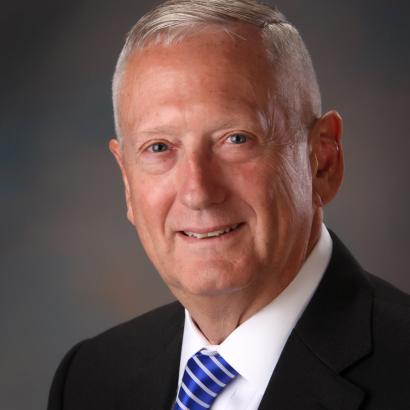
General Jim Mattis
Davies Family Distinguished Fellow
General Jim Mattis, US Marine Corps (Ret.), is the Davies Family Distinguished Fellow, after having served as the nation’s 26th Secretary of Defense in the administration.
In December of 2016, President Donald J. Trump nominated Mattis for Secretary of Defense and he was confirmed a month later. Mattis left Hoover to apply his knowledge and experience to help the President shape his national defense policy.
General Mattis commanded at multiple levels in his forty-three year career as an infantry Marine. As a lieutenant in the western Pacific, he served as a rifle and weapons platoon commander in the Third Marine Division. As a captain in the Pacific and Indian Ocean, he commanded a rifle company and a weapons company in the First Marine Brigade. As a major he was the battalion officer at the Naval Academy Prep School and commanded Marine recruiters in the Pacific Northwest and Hawaii. As a lieutenant colonel he commanded an assault battalion breaching the Iraqi minefields in Operation Desert Storm. As a colonel he commanded 7th Marine Regiment and, on Pentagon duty, he served as the Department of Defense Executive Secretary. As a brigadier general he was the Senior Military Assistant to the Deputy Secretary of Defense.
Following 9-11 he commanded the First Marine Expeditionary Brigade and Naval Task Force 58 in operations against the Taliban in southern Afghanistan. As a major general, he commanded the First Marine Division during the initial attack and subsequent stability operations in Iraq. In his first tour as a lieutenant general, he was in charge of Marine Corps Combat Development at Quantico and subsequently served as Commander, I Marine Expeditionary Force/Commander, U.S. Marine Forces in the Middle East. As a general he served concurrently as the Commander of U.S. Joint Forces Command and as NATO’s Supreme Allied Commander for Transformation.
Before retiring in 2013 he was the Commander of U.S. Central Command, directing military operations of over 250,000 soldiers, sailors, airmen, Coast Guardsmen, Marines and allied forces across the Middle East. He is the author of the New York Times bestseller, Call Sign Chaos: Learning to Lead, and the co-editor of the book, Warriors & Citizens: American Views of Our Military.
Read Full Bio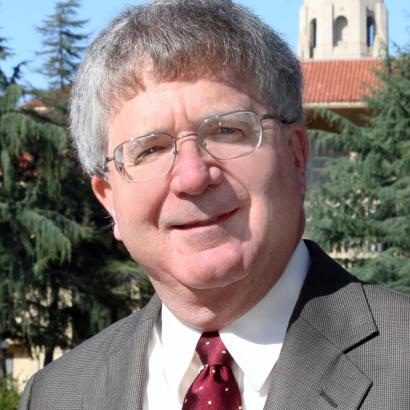
Michael McConnell
Senior Fellow
Michael W. McConnell is the Richard and Frances Mallery Professor of Law and the director of the Constitutional Law Center at Stanford Law School, and a senior fellow at the Hoover Institution. From 2002 to 2009, he served as a circuit judge on the US Court of Appeals for the Tenth Circuit. He was nominated by President George W. Bush, a Republican, and confirmed by a Democratic-majority Senate by unanimous consent. McConnell has previously held chaired professorships at the University of Chicago and the University of Utah, and visiting professorships at Harvard and New York University. He teaches courses on constitutional law, constitutional history, the First Amendment, and interpretive theory. He has published widely in the fields of constitutional law and theory, especially on matters relating to church and state, equal protection, and the separation of powers.
His latest book, The President Who Would Not Be King: Executive Power under the Constitution, was published by Princeton University Press in November 2020. McConnell has argued fifteen cases in the US Supreme Court, most recently a 8-1 victory in a Takings Clause case on behalf of California raisin farmers. He served as law clerk to Supreme Court Justice William J. Brennan Jr. and DC Circuit Chief Judge J. Skelly Wright. He has been assistant general counsel of the Office of Management and Budget, assistant to the solicitor general of the Department of Justice, and a member of the President’s Intelligence Oversight Board. He is senior of counsel to the law firm Wilson, Sonsini, Goodrich & Rosati.
Read Full Bio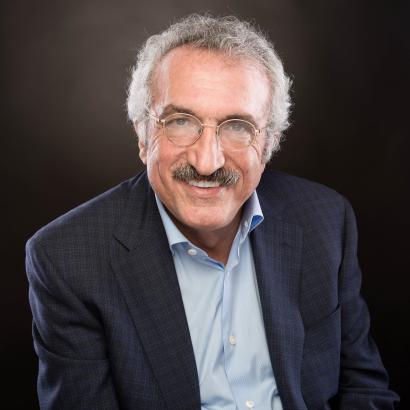
Abbas Milani
Research Fellow
Abbas Milani is a research fellow and codirector of the Iran Democracy Project at the Hoover Institution. In addition, Milani is the Hamid and Christina Moghadam Director of Iranian Studies at Stanford University. His expertise is US/Iran relations and Iranian cultural, political, and security issues.
Before coming to Hoover, Milani was a professor of history and political science and chair of the department at Notre Dame de Namur University and a research fellow at the Institute of International Studies at the University of California at Berkeley, in addition to being an assistant professor in the faculty of law and political science at Tehran University and a member of the board of directors of Tehran University's Center for International Studies from 1979 to 1987. Milani was also a research fellow at the Iranian Center for Social Research from 1977 to 1978 and an assistant professor at the National University of Iran from 1975 to 1977.
His most recent publication is The Shah (2012). He is the author of The Myth of the Great Satan: A New Look at America's Relations with Iran (Hoover Institution Press, 2010); Eminent Persians: Men and Women Who Made Modern Iran, 1941–1979, 2 vols.( Syracuse University Press, November 2008); King of Shadows: Essays on Iran’s Encounter with Modernity, Persian text published in the United States (Ketab Corp., spring 2005); Lost Wisdom: Rethinking Persian Modernity in Iran (Mage, 2004); The Persian Sphinx: Amir Abbas Hoveyda and the Riddle of the Iranian Revolution (Mage, 2000); Modernity and Its Foes in Iran (Gardon Press, 1998); Modernity and Its Foes in Iran (Gardon Press, 1998); Tales of Two Cities: A Persian Memoir (Mage 1996); On Democracy and Socialism, a collection of articles coauthored with Faramarz Tabrizi Pars Press, 1987); and Malraux and the Tragic Vision (Agah Press, 1982). Milani has also translated numerous books and articles into Persian and English.
Milani's articles have been published in journals, magazines, and newspapers. He has been interviewed for national and international radio and television programs.
He is a member of the American Association of Political Science, the American Academy of Political and Social Science, and the Association of Iranian Studies.
Milani received his BA in political science and economics from the University of California at Berkeley and his PhD in political science from the University of Hawaii.
Read Full Bio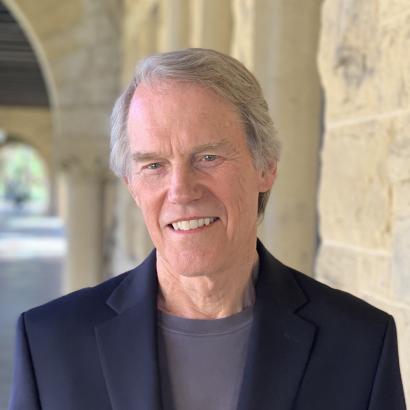
Terry M. Moe
Senior Fellow
Terry M. Moe was a senior fellow at the Hoover Institution and the William Bennett Munro Professor of political science at Stanford University.
He has written extensively on the presidency and public bureaucracy as well as political institutions more generally, publishing many scholarly articles on these topics. His most recent books are Relic: How Our Constitution Undermines Effective Government--And Why We Need a More Powerful Presidency (with William Howell, 2016), and Presidents, Populism, and the Crisis of Democracy (with William Howell, 2020).
He has also written extensively on the politics of American education. His most recent books are The Politics of Institutional Reform: Katrina, Education, and the Second Face of Power (2019), The Comparative Politics of Education: Teachers Unions and Education Systems Around the World (edited with Susanne Wiborg, 2017), and Special Interest: Teachers Unions and America’s Public Schools (2011). His prior work on education includes Politics, Markets, and America's Schools (1990) and Liberating Learning: Technology, Politics, and the Future of American Education (2009), both with John E. Chubb, and Schools, Vouchers, and the American Public (2001).
Read Full Bio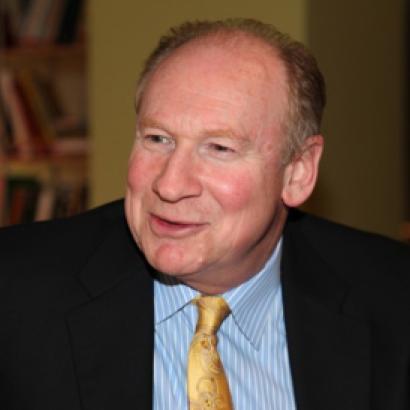
Lee Ohanian
Senior Fellow (adjunct)
Lee E. Ohanian is a senior fellow (adjunct) at the Hoover Institution and a professor of economics and director of the Ettinger Family Program in Macroeconomic Research at the University of California, Los Angeles (UCLA).
He is associate director of the Center for the Advanced Study in Economic Efficiency at Arizona State University and a research associate at the National Bureau of Economic Research, where he codirects the research initiative Macroeconomics across Time and Space. He is also a fellow in the Society for the Advancement of Economic Theory.
His research focuses on economic crises, economic growth, and the impact of public policy on the economy. Ohanian is coeditor of Government Policies and Delayed Economic Recovery (Hoover Institution Press, 2012). He is an adviser to the Federal Reserve Banks of Minneapolis and St. Louis, has previously advised other Federal Reserve banks, foreign central banks, and the National Science Foundation, and has testified to national and state legislative committees on economic policy. He is on the editorial boards of Econometrica and Macroeconomic Dynamics. He is a frequent media commentator and writes for the Wall Street Journal, Forbes, and Investor’s Business Daily. He has won numerous teaching awards at UCLA and the University of Rochester.
He previously served on the faculties of the Universities of Minnesota and Pennsylvania and as vice president at Security Pacific Bank. He received his undergraduate degree in economics from the University of California, Santa Barbara, and his PhD in economics from the University of Rochester.
Read Full Bio
Kori Schake
Dr. Kori Schake is the Deputy Director-General of the International Institute for Strategic Studies (IISS). She was a distinguished research fellow at the Hoover Institution and is the editor, with Jim Mattis, of the book Warriors and Citizens: American Views of Our Military.
She has served in various policy roles including at the White House for the National Security Council; at the Department of Defense for the Office of the Secretary and Joint Chiefs of Staff and the State Department for the Policy Planning Staff. During the 2008 presidential election, she was Senior Policy Advisor on the McCain-Palin campaign.
She has been profiled in publications ranging from national news to popular culture including the Los Angeles Times, Politico, and Vogue Magazine.
Her recent publications include: Safe Passage: The Transition from British to American Hegemony (Harvard University Press, 2017), Republican Foreign Policy After Trump (Survival, Fall 2016), National Security Challenges for the Next President (Orbis, Winter 2017), and Will Washington Abandon the Order?, (Foreign Affairs, Jan/Feb 2017).
Read Full Bio
Jacquelyn Schneider
Hargrove Hoover Fellow
Jacquelyn Schneider is the Hargrove Hoover Fellow at the Hoover Institution, the Director of the Hoover Wargaming and Crisis Simulation Initiative, and an affiliate with Stanford's Center for International Security and Cooperation. Her research focuses on the intersection of technology, national security, and political psychology with a special interest in cybersecurity, autonomous technologies, wargames, and Northeast Asia. She was previously an Assistant Professor at the Naval War College as well as a senior policy advisor to the Cyberspace Solarium Commission.
Her scholarly work appears in a series of journals including International Organization, European Journal of International Relations, Security Studies, Journal of Conflict Resolution, Strategic Studies Quarterly, Journal of Cybersecurity, The Washington Quarterly, Journal of Strategic Studies, Journal of Global Security Studies, Simulation and Gaming, AI & Society, PloS One and is featured in a series of books including Cross Domain Deterrence: Strategy in an Era of Complexity (Oxford University Press, 2019). In addition to her scholarly publications, she is a frequent contributor to policy outlets, including New York Times, Wall Street Journal, Financial Times, Foreign Affairs, CNN, NPR, BBC, MSNBC, CFR, Wired, Cipher Brief, Lawfare, War on the Rocks, Washington Post, Bulletin of the Atomic Scientists, National Interest, H-Diplo, and the Center for a New American Security.
Dr. Schneider was a 2020 winner of the Perry World House-Foreign Affairs Emerging Scholars Policy Prize. She is also the recipient of a Minerva grant on autonomy (with co-PIs Michael Horowitz, Julia Macdonald, and Allen Dafoe), a University of Denver grant to study public responses to the use of drones (with Macdonald), and a grant from the Stanton Foundation to study networks, cyber, and nuclear stability through wargames.
Dr. Schneider is an active member of the defense policy community with previous positions at the Center for a New American Security and the RAND Corporation. Before beginning her academic career, she spent six years as an Air Force officer in South Korea and Japan and is currently a reservist assigned to US Space Systems Command. She has a BA from Columbia University, MA from Arizona State University, and PhD from George Washington University.
Read Full Bio
Amit Seru
Senior Fellow
Amit Seru is a Senior Fellow at the Hoover Institution, the Steven and Roberta Denning Professor of Finance at the Stanford Graduate School of Business (Stanford GSB), a senior fellow at Stanford Institute for Economic Policy Research (SIEPR), and a Research Associate at the National Bureau of Economic Research (NBER). He was formerly a faculty member at the University of Chicago’s Booth School of Business. He is currently co-directing Hoover initiatives on corporate governance, long-run prosperity, and regulation and the rule of law.
Professor Seru’s research focuses on corporate finance with an emphasis on financial intermediation and regulation, technological innovation and incentive provision and financing in firms. His research in these areas has been published in American Economic Review, Journal of Political Economy, Quarterly Journal of Economics, Review of Economic Studies, Journal of Finance, Journal of Financial Economics, Review of Financial Studies, and other peer-reviewed journals. He is a co-editor of the Journal of Finance and was previously an editor of Review of Corporate Finance Studies, department editor (Finance) of Management Science and an associate editor of the Journal of Political Economy.
He has presented his research to U.S. and international regulatory agencies, including the Bank for International Settlement (BIS), Consumer Finance Protection Bureau (CFPB), European Central Bank (ECB), Federal Reserve, Federal Deposit Insurance Corporation (FDIC), Financial Industry Regulatory Authority (FINRA), the International Monetary Fund (IMF), the Monetary Authority of Singapore (MAS), the Office of the Comptroller of the Currency (OCC), and the Securities and Exchange Commission (SEC). Most recently, he gave the Biennial Andrew Crockett lecture on regulation of banks in the era of fintechs to central bank governors around the world at the BIS. He has received various National Science Foundation grants, the Alexandre Lamfalussy research fellowship from BIS and was named as one of the top 25 Economists under 45 by the International Monetary Fund in 2014. His research has been featured in major media, including the Wall Street Journal, The New York Times, the Financial Times and the Economist. His opinion essays have appeared in several outlets including the Wall Street Journal and The New York Times.
Seru earned a B.E. in electronics and communication and an MBA from the University of Delhi. Subsequently, he received a PhD in finance from the University of Michigan. He was a senior consultant at Accenture before pursuing his Ph.D. Seru was the recipient of a Rackham Pre-Doctoral Fellowship at University of Michigan and received a Lt. Governor’s gold medal for overall academic excellence at the University of Delhi.
Read Full Bio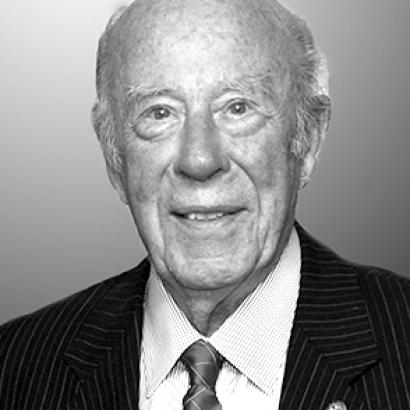
George P. Shultz
George Pratt Shultz passed away on February 6, 2021.
Shultz was the Thomas W. and Susan B. Ford Distinguished Fellow at the Hoover Institution. He had a distinguished career in government, in academia, and in the world of business. Shultz was one of two individuals who have held four different federal cabinet posts; he taught at three of this country’s great universities; and for eight years he was president of a major engineering and construction company.
Shultz was born in New York City on December 13, 1920, and grew up in Englewood, New Jersey. He attended Princeton University, graduating in 1942 with a BA in economics. Shortly after graduation, he enlisted in the US Marine Corps and served through 1945. He then resumed his studies, this time at the Massachusetts Institute of Technology (MIT), where he earned a PhD in industrial economics in 1949. From 1948 to 1957 he taught at MIT, taking a leave of absence in 1955 to serve as a senior staff economist on President Eisenhower’s Council of Economic Advisers.
In 1957, Shultz joined the faculty of the University of Chicago’s Graduate School of Business as a professor of industrial relations. He was named dean five years later. From 1968 to 1969 he was a fellow at the Center for Advanced Study in the Behavioral Sciences at Stanford University. He returned to government when he was appointed secretary of labor by President Nixon in 1969. In June 1970, he became the first director of the newly formed Office of Management and Budget. In May 1972, he was named secretary of the Treasury, a post he held for two years. During this period, Shultz also served as chairman of the Council on Economic Policy, negotiated a series of trade protocols with the Soviet Union, and represented the United States at the Tokyo meeting on the General Agreement on Tariffs and Trade.
Shultz left government service in 1974 to become president and director of the Bechtel Group, where he remained until 1982. While at Bechtel, he maintained close ties with the academic world by joining the faculty of Stanford University.
Shultz held two key positions in the Reagan administration: chairman of the President’s Economic Policy Advisory Board (1981–82) and secretary of state (1982–89). As secretary of state, he played a key role in implementing a foreign policy that led to the successful conclusion of the Cold War and the development of strong relationships between the United States and the countries of the Asia-Pacific region including China, Japan, and the Association of Southeast Asian Nations.
After leaving office, Shultz rejoined the Bechtel Group as director and senior counselor. He also rejoined Stanford as professor of international economics at the Graduate School of Business and as a distinguished fellow at the Hoover Institution. In 2001, Shultz was named the Thomas W. and Susan B. Ford Distinguished Fellow at the Hoover Institution.
In January 1989, Shultz was awarded the Medal of Freedom, the nation’s highest civilian honor. He is also a recipient of the Seoul Peace Prize (1992), the West Point Sylvanus Thayer Award (1992), the Eisenhower Medal for Leadership and Service (2001), the Reagan Distinguished American Award (2002), and the Association for Diplomatic Studies and Training’s Ralph Bunche Award for Diplomatic Excellence (2002). Other honors awarded in 2002 include the Elliot Richardson Prize for Excellence and Integrity in Public Service, the James H. Doolittle Award, and the John Witherspoon Medal for Distinguished Statesmanship. The George Shultz National Foreign Affairs Training Center in Arlington, Virginia, was dedicated in a ceremony on May 29, 2002. Shultz was named a distinguished fellow of the American Economic Association in 2005 and received the American Spirit Award from the National World War II Museum in 2006. In 2007, he received the George Marshall Award from the United States Agency for International Development and the Truman Medal for Economic Policy. He received the Rumford Prize from the American Academy of Arts and Sciences in 2008 and the Commandant’s Leadership Award from the Marine Corps–Law Enforcement Foundation in 2009. In 2011, he received the Congressional Medal of Honor Society’s Distinguished Citizen Award and the first Economic Club of New York Award for Leadership Excellence. In 2012, he was presented with a Democracy Service Medal by the National Endowment for Democracy and received the Henry A. Kissinger Prize at the American Academy in Berlin. The Ronald Reagan Presidential Foundation dedicated the Global Issues and Reagan-Gorbachev Summits Galleries in his honor in June 2012.
Shultz’s publications include Thinking about the Future (Hoover Institution Press, June 2019); Learning from Experience (Hoover Institution Press, October 2016); Issues on My Mind: Strategies for the Future (Hoover Institution Press, 2013); The Nuclear Enterprise: High-Consequence Accidents: How to Enhance Safety and Minimize Risks in Nuclear Weapons and Reactors (Hoover Institution Press, 2012), coedited with Sidney Drell; Ideas & Action: Featuring 10 Commandments for Negotiations (2010); Ending Government Bailouts as We Know Them (Hoover Institution Press 2010), coedited with Kenneth E. Scott and John Taylor; Putting Our House in Order: A Citizen’s Guide to Social Security and Health Care Reform, with John B. Shoven (2008); Turmoil and Triumph: My Years as Secretary of State (1993); Economic Policy beyond the Headlines, with Kenneth Dam (1977); Workers and Wages in the Urban Labor Market, with Albert Rees (1970); Guidelines, Informal Controls, and the Marketplace, with Robert Aliber (1966); Strategies for the Displaced Worker: Confronting Economic Change, with Arnold Weber (1966); Management Organization and the Computer, with Thomas Whisler (eds.) (1960); Labor Problems: Cases and Readings, with John Coleman (1959); The Dynamics of a Labor Market, with Charles Myers (1951); Pressures on Wage Decisions (1951); "Case Study No. 10," with Robert P. Crisara, in Causes of Industrial Peace under Collective Bargaining (1951); and "Case Study No. 7," with Charles A. Myers, in Causes of Industrial Peace under Collective Bargaining (1950).
Shultz holds honorary degrees from Notre Dame, Columbia, Loyola, University of Pennsylvania, Rochester, Princeton, Carnegie-Mellon, City University of New York, Yeshiva University, Weizmann Institute of Science, Baruch College of New York, Hebrew University of Jerusalem, Tbilisi State University in the Republic of Georgia, Technion, Keio University in Tokyo, Williams College, and Peking University.
Read Full Bio
Kiron K. Skinner
W. Glenn Campbell Research Fellow
Kiron K. Skinner is the W. Glenn Campbell Research Fellow at the Hoover Institution. Her areas of expertise are international relations, international security, US foreign policy, and political strategy. Skinner participates in numerous Hoover Institution projects, including the Global Policy and Strategy Initiative on international aecurity, the Middle East and the Islamic World Working Group, and the Military History in Contemporary Conflict Working Group. Skinner currently serves as the Taube Professor of International Relations and Politics at Pepperdine University's School of Public Policy; visiting fellow and senior advisor to the president at the Heritage Foundation; president and CEO of Foundation for America and the World; and a Fox News contributor.
Skinner previously served as the Taube Professor of International Relations and Politics at Carnegie Mellon University (CMU), as well as the founding director of the Carnegie Mellon University Washington Semester Program; the Center for International Relations and Politics; and the Institute for Strategic Analysis. At CMU, Skinner was a distinguished fellow at CyLab, a cyber-oriented research center associated with the College of Engineering, and held courtesy faculty positions at Heinz College and the Institute for Software Research, an academic department in the School of Computer Science. She has also taught political science courses at Hamilton College, Harvard University, and the University of California–Los Angeles.
Skinner is an award-winning and best-selling author. Her coauthored books Reagan, In His Own Hand (2001) and Reagan, A Life in Letters (2003) were New York Times best sellers. The former was excerpted in the New York Times Magazine (December 31, 2000), was noted as one of the five best books on vital American presidential elections in the Wall Street Journal (March 5, 2021), and won the Hoover Institution’s Uncommon Book Award in 2002. The latter was selected as one of the best books of 2003 by the Los Angeles Times, was featured as a Time magazine cover story (September 29, 2003), and was the subject of an editorial written by the New York Times editorial board (September 29, 2003). Skinner also coauthored, with with Serhiy Kudelia, Bruce Bueno de Mesquita, and Condoleezza Rice, The Strategy of Campaigning: Lessons from Ronald Reagan and Boris Yeltsin (2007), which was excerpted on the New York Times opinion page (September 15, 2007). A frequent contributor of opinion essays, Skinner has written for CNN, Forbes, Foreign Policy, the National Interest, National Review Online, the New York Times, RealClear Defense, the Washington Post, and the Wall Street Journal. Skinner is the editor of a Palgrave Macmillan series on American political ideology.
From September 2018 to August 2019, Skinner served as director of the Office of Policy Planning and as senior policy adviser to the US secretary of state. In those roles, she reengaged the Department of State in red-team exercises on regional conflicts, spearheaded ties between the State and Defense Departments in critical areas, began a nationally discussed and debated discussion on the need for an Article X on China, and fostered transatlantic partnerships through numerous strategic dialogues, including the first Policy Planners Summit for NATO. She played a central role in creating the Commission on Unalienable Rights and rechartering the Foreign Affairs Policy Board, and she served as the secretariat for both entities. Following her time at the State Department, the White House appointed her to the US Defense Department’s Defense Business Board. At various times in the presidential administrations of George W. Bush, Barack Obama, and Donald J. Trump, Skinner served on the Chief of Naval Operations Executive Panel, the Defense Policy Board, the National Security Education Board (US Senate confirmed), and the board of the Naval Postgraduate School. In 2016, she was awarded the Superior Public Service award by the chief of naval operations.
Read Full Bio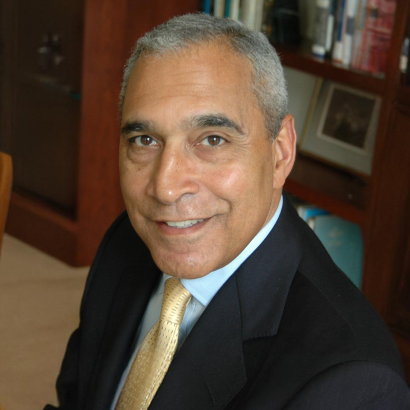
Shelby Steele
Robert and Marion Oster Fellow (adjunct)
Shelby Steele was the Robert and Marion Oster Senior Fellow (adjunct) at the Hoover Institution. He specializes in the study of race relations, multiculturalism, and affirmative action. He was appointed a Hoover fellow in 1994.
Steele has written widely on race in American society and the consequences of contemporary social programs on race relations.
In 2006, Steele received the Bradley Prize for his contributions to the study of race in America. In 2004, he was awarded the National Humanities Medal. In 1991, his work on the documentary Seven Days in Bensonhurst was recognized with an Emmy Award and two awards for television documentary writing—the Writer's Guild Award and the San Francisco Film Festival Award.
Steele received the National Book Critic's Circle Award in 1990 in the general nonfiction category for his book The Content of Our Character: A New Vision of Race in America (HarperCollins, 1998). Other books by Steele include Shame: How America's Past Sins Have Polarized Our Country (Basic Books, 2015), A Bound Man: Why We Are Excited About Obama and Why He Can't Win (Free Press, 2007), White Guilt: How Blacks and Whites Together Destroyed the Promise of the Civil Rights Era (HarperCollins, 2006) and A Dream Deferred: The Second Betrayal of Black Freedom in America (HarperCollins, 1998).
Steele has written extensively for major publications including the New York Times and the Wall Street Journal. He is a contributing editor at Harper's magazine. He has also spoken before hundreds of groups and appeared on national current affairs news programs including Nightline and 60 Minutes.
Steele is a member of the National Association of Scholars, the national board of the American Academy for Liberal Education, the University Accreditation Association, and the national board at the Center for the New American Community at the Manhattan Institute.
Steele holds a PhD in English from the University of Utah, an MA in sociology from Southern Illinois University, and a BA in political science from Coe College, Cedar Rapids, Iowa.
Read Full Bio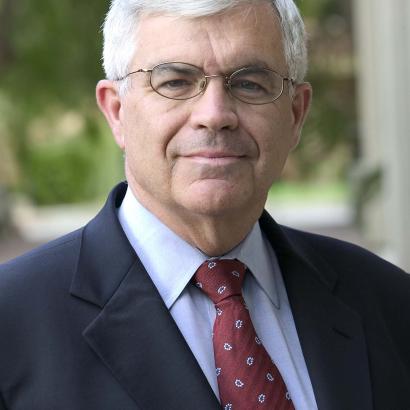
John B. Taylor
George P. Shultz Senior Fellow in Economics, Emeritus
John B. Taylor is the George P. Shultz Senior Fellow in Economics, Emeritus, at the Hoover Institution and the Mary and Robert Raymond Professor of Economics at Stanford University. He chairs the Hoover Working Group on Economic Policy, co-chairs the Hoover Technology, Economics and Governance Working Group, and is director of Stanford’s Introductory Economics Center.
Taylor's fields of expertise are monetary policy, fiscal policy, and international economics. His book Getting Off Track was one of the first on the financial crisis; his latest book, First Principles, for which he received the 2012 Hayek Prize, develops an economic plan to restore America’s prosperity. His most recent book is Choose Economic Freedom: Enduring Policy Lessons from the 1970s and 1980s with George P. Shultz.
Taylor served as senior economist on President Ford's and President Carter’s Council of Economic Advisers, as a member of President George H. W. Bush's Council of Economic Advisers, and as a senior economic adviser to Bob Dole’s presidential campaign, to George W. Bush’s presidential campaign in 2000, and to John McCain’s presidential campaign. He was a member of the Congressional Budget Office's Panel of Economic Advisers from 1995 to 2001. From 2001 to 2005, Taylor served as undersecretary of the Treasury for international affairs where he was responsible for currency markets, international development, for oversight of the International Monetary Fund and the World Bank, and for coordinating policy with the G-7 and G-20.
Taylor received the Bradley Prize from the Bradley Foundation and the Adam Smith Award as well as the Adolph G. Abramson Award from the National Association for Business Economics. He was awarded the Alexander Hamilton Award for his overall leadership at the US Treasury, the Treasury Distinguished Service Award for designing and implementing the currency reforms in Iraq, and the Medal of the Republic of Uruguay for his work in resolving the 2002 financial crisis. At Stanford he was awarded the George P. Shultz Distinguished Public Service Award, as well as the Hoagland Prize and the Rhodes Prize for excellence in undergraduate teaching. He is a fellow of the American Academy of Arts and Sciences and the Econometric Society; he formerly served as vice president of the American Economic Association.
Taylor received the 2016 Adam Smith Award from the Association of Private Enterprise Education and the 2015 Truman Medal for Economic Policy for extraordinary contribution to the formation and conduct of economic policy.
Taylor formerly held positions as professor of economics at Princeton University and Columbia University. Taylor received a BA in economics summa cum laude from Princeton University in 1968 and a PhD in economics from Stanford University in 1973.
Read Full Bio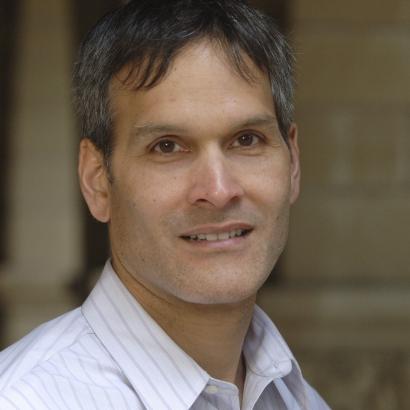
John Villasenor
Senior Fellow (adjunct)
John Villasenor was a senior fellow (adjunct) at the Hoover Institution and is also on the faculty at UCLA, where he is a professor of electrical engineering, public policy, law, and management. Villasenor’s work considers the technology, policy, and legal issues arising from key technology trends, including the growth of artificial intelligence and the increasing complexity and interdependence of today’s networks and systems.
He has published in the Atlantic, Billboard, the Chronicle of Higher Education, Fast Company, Forbes, the Huffington Post, the Los Angeles Times, the New York Times, Scientific American, Slate, the Washington Post, and many academic journals. He has also provided congressional testimony on multiple occasions on topics including privacy and intellectual property law.
Before joining the faculty at UCLA, Villasenor was with the National Aeronautics and Space Administration’s Jet Propulsion Laboratory, where he developed methods of imaging the earth from space. He holds a BS from the University of Virginia and an MS and PhD from Stanford University. Villasenor is a member of the Council on Foreign Relations and an affiliate at the Center for International Security and Cooperation at Stanford.
Read Full Bio
Bill Whalen
Virginia Hobbs Carpenter Distinguished Policy Fellow in Journalism
Bill Whalen, the Virginia Hobbs Carpenter Distinguished Policy Fellow in Journalism and a Hoover Institution research fellow since 1999, writes and comments on campaigns, elections and governance with an emphasis on California and America’s political landscapes.
Whalen writes on politics and current events for The Washington Post and Real Clear Politics, as well as Hoover’s California On Your Mind web channel.
Whalen hosts Hoover’s Matters of Policy & Politics podcast and serves as the moderator of Hoover’s GoodFellows broadcast exploring social, economic and geopolitical dynamics. He also is the host of The Hoover Book Club showcasing new releases by Hoover fellows.
Whalen has been a guest political analyst on the Fox News Channel, MSNBC and CNN. He’s also a regular guest on the nationally syndicated radio shows hosted by John Batchelor and Lars Larson.
Whalen has served as a media consultant for California political hopefuls and aspiring policy leaders. His past clients have included former Governor Arnold Schwarzenegger, former congressman Tom Campbell and former Los Angeles mayor Richard J. Riordan.
Prior to joining the Hoover Institution, Whalen served as chief speechwriter and director of public affairs for former California governor Pete Wilson. In that capacity, he was responsible for the governor's annual State of the State address, as well as other major policy addresses.
Before moving to California, Whalen was a political correspondent for Insight Magazine, the national newsweekly and sister publication of the Washington Times, where he was honored for his profiles and analysis of candidates, campaigns, Congress, and the White House.
In addition to his time in Washington as a political journalist, Whalen served as a speechwriter for the Bush-Quayle reelection campaign and was a senior associate with the public relations firm Robinson-Lake/Sawyer-Miller, offering media and political advice for domestic and foreign clientele.
Whalen currently resides in Palo Alto, California.
Read Full Bio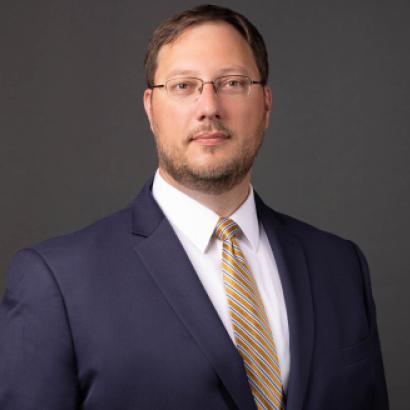
Adam J. White
Adam J. White was a research fellow at the Hoover Institution. White is the director of the Center for the Study of the Administrative State at George Mason University's Antonin Scalia Law School, where he also teaches Administrative Law. He writes widely on the administrative state, the Supreme Court, the Constitution, and regulatory policy, with special focus on energy policy and financial regulation.
He was appointed to the Administrative Conference of the United States, a federal advisory board focused on improving federal agencies' practices. He also serves on the leadership council of the American Bar Association's Administrative Law Section; on the executive committee of the Federalist Society's Administrative Law Practice Group; and on the board of directors of LandCAN, a nonprofit organization dedicated to promoting conservation on working lands.
His articles appear in The Wall Street Journal, The Weekly Standard, Commentary, and other publications, and he is a contributing editor for National Affairs, City Journal, and The New Atlantis. He previously practiced law at Boyden Gray & Associates PLLC and Baker Botts LLP, litigating regulatory and constitutional issues. After graduating from the University of Iowa and Harvard Law School, he clerked for Judge David B. Sentelle on the U.S. Court of Appeals for the D.C. Circuit.
Read Full Bio





